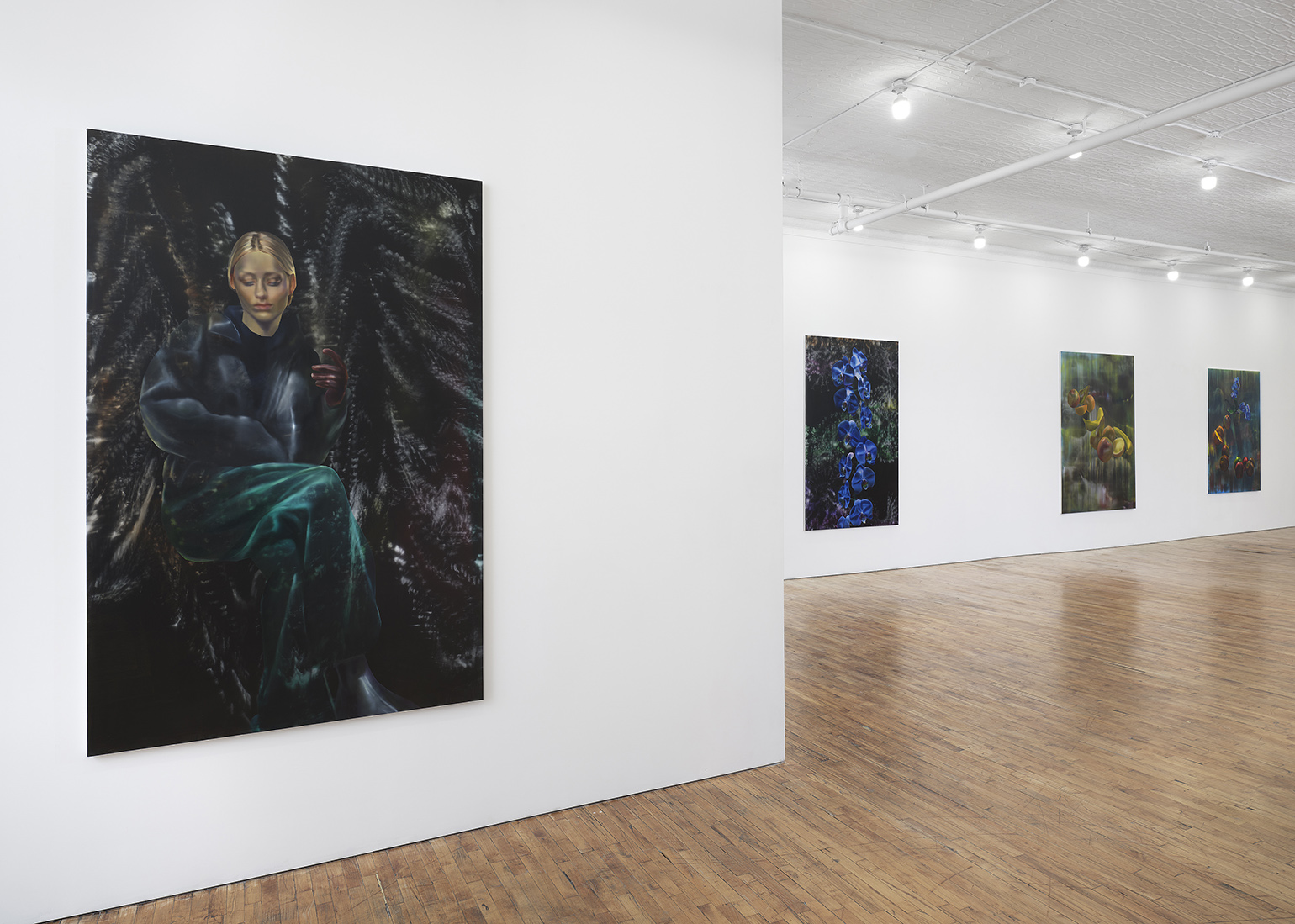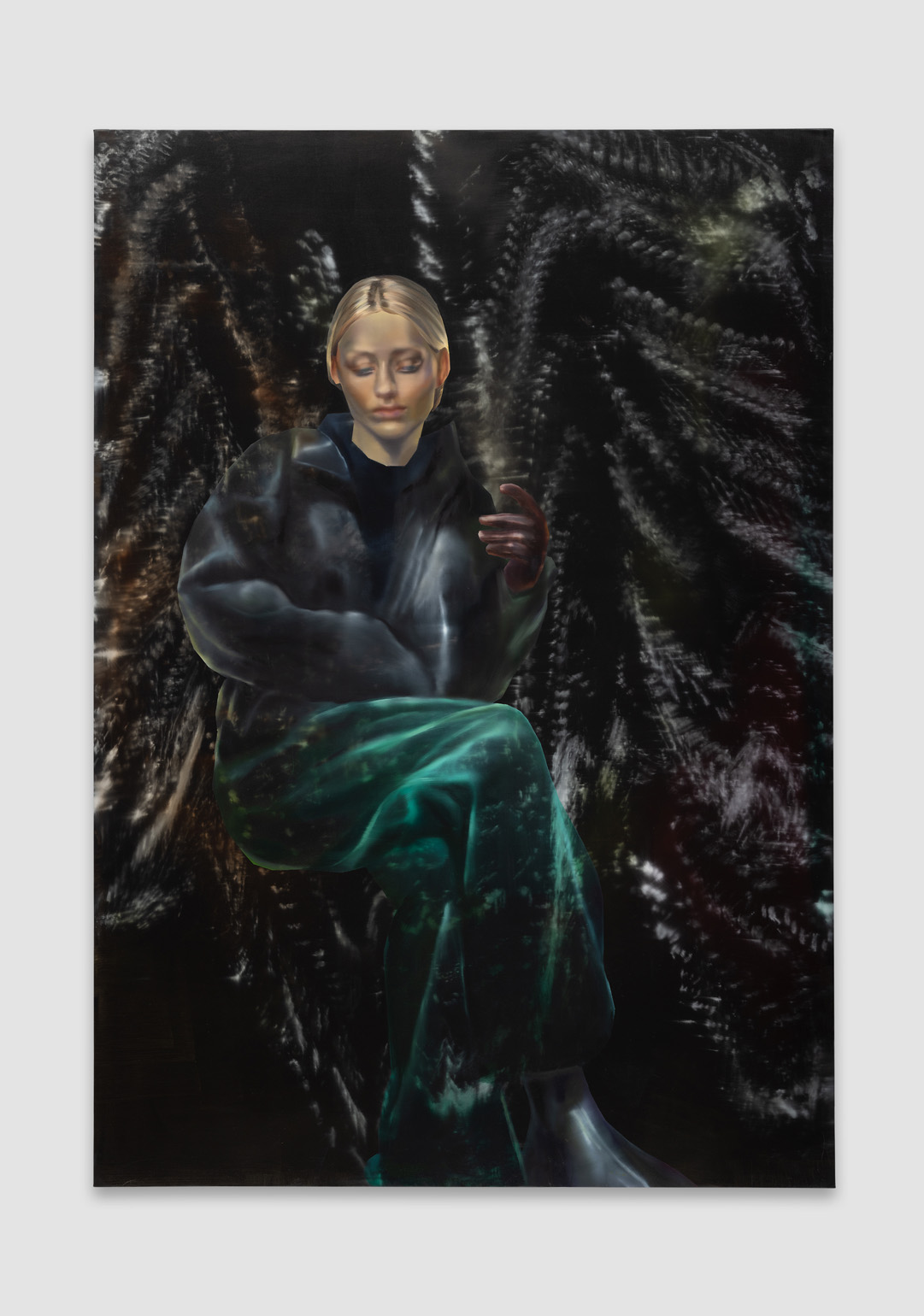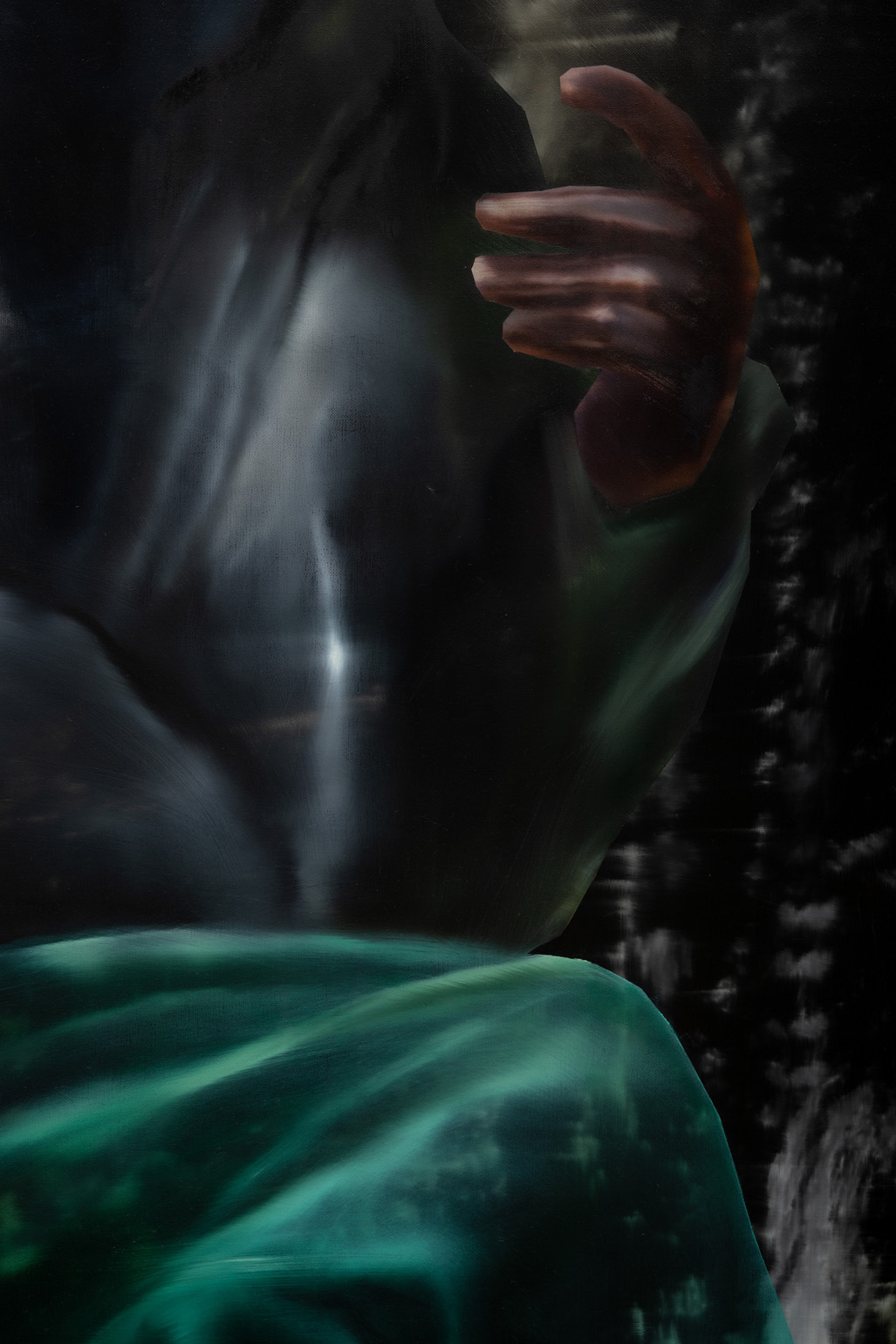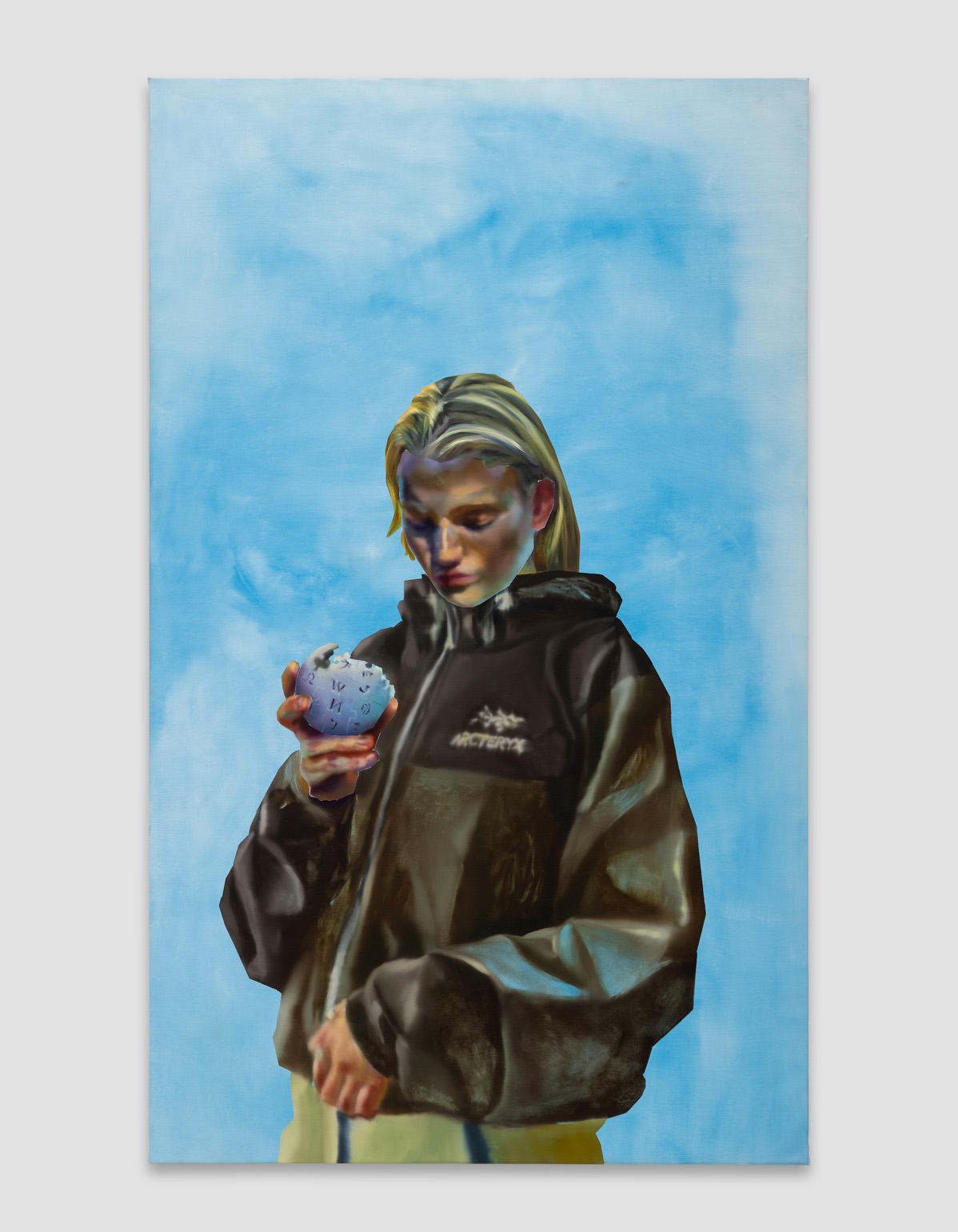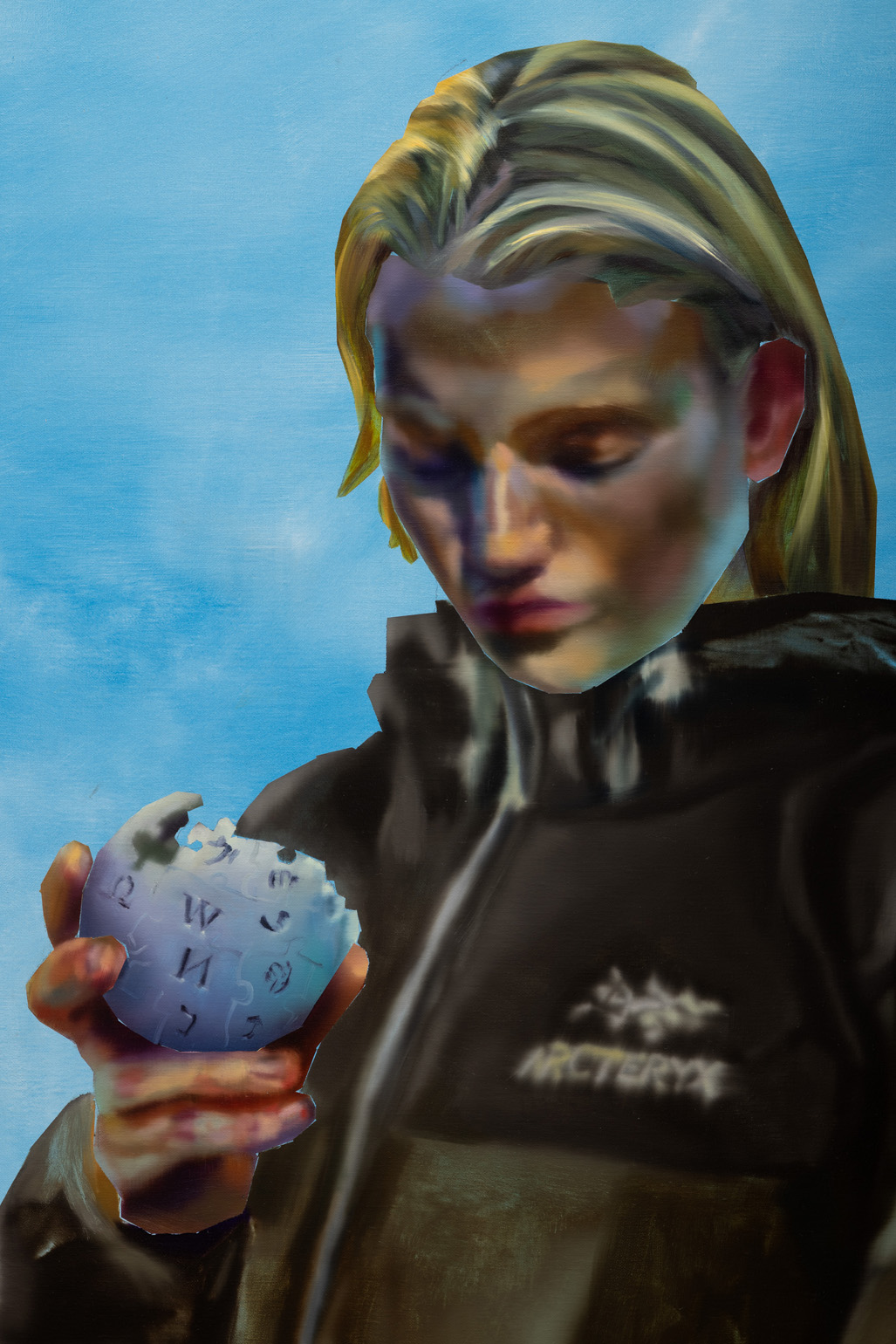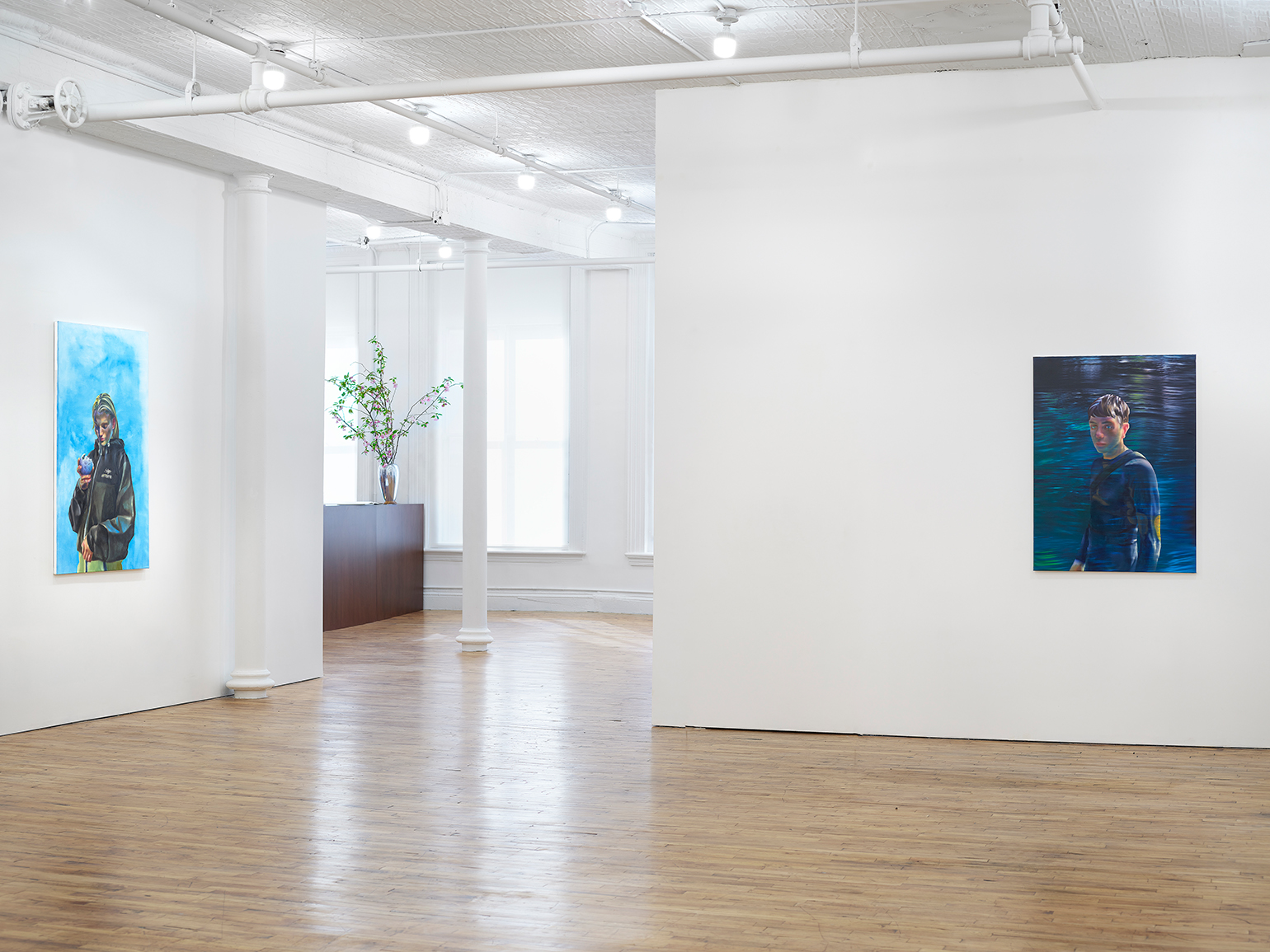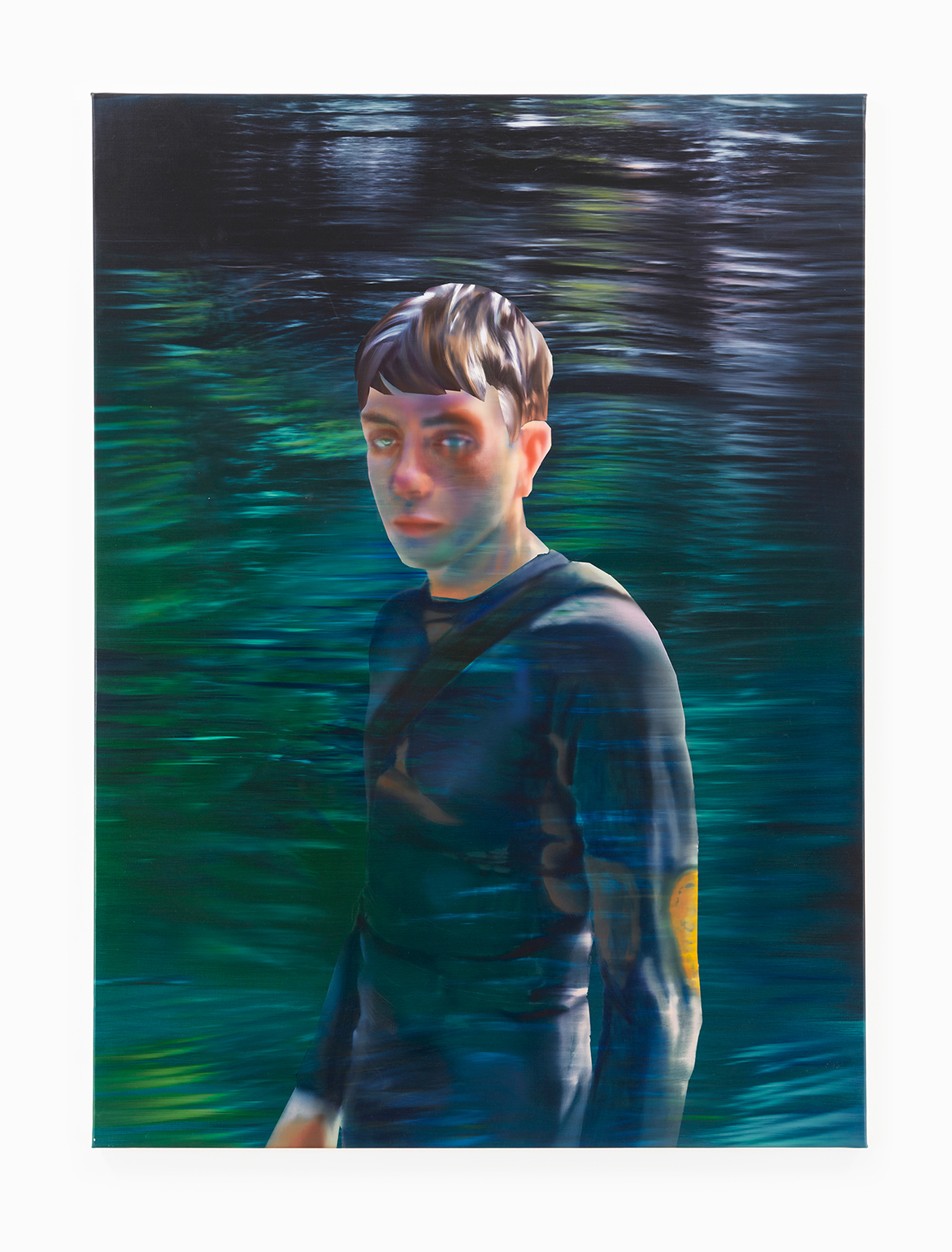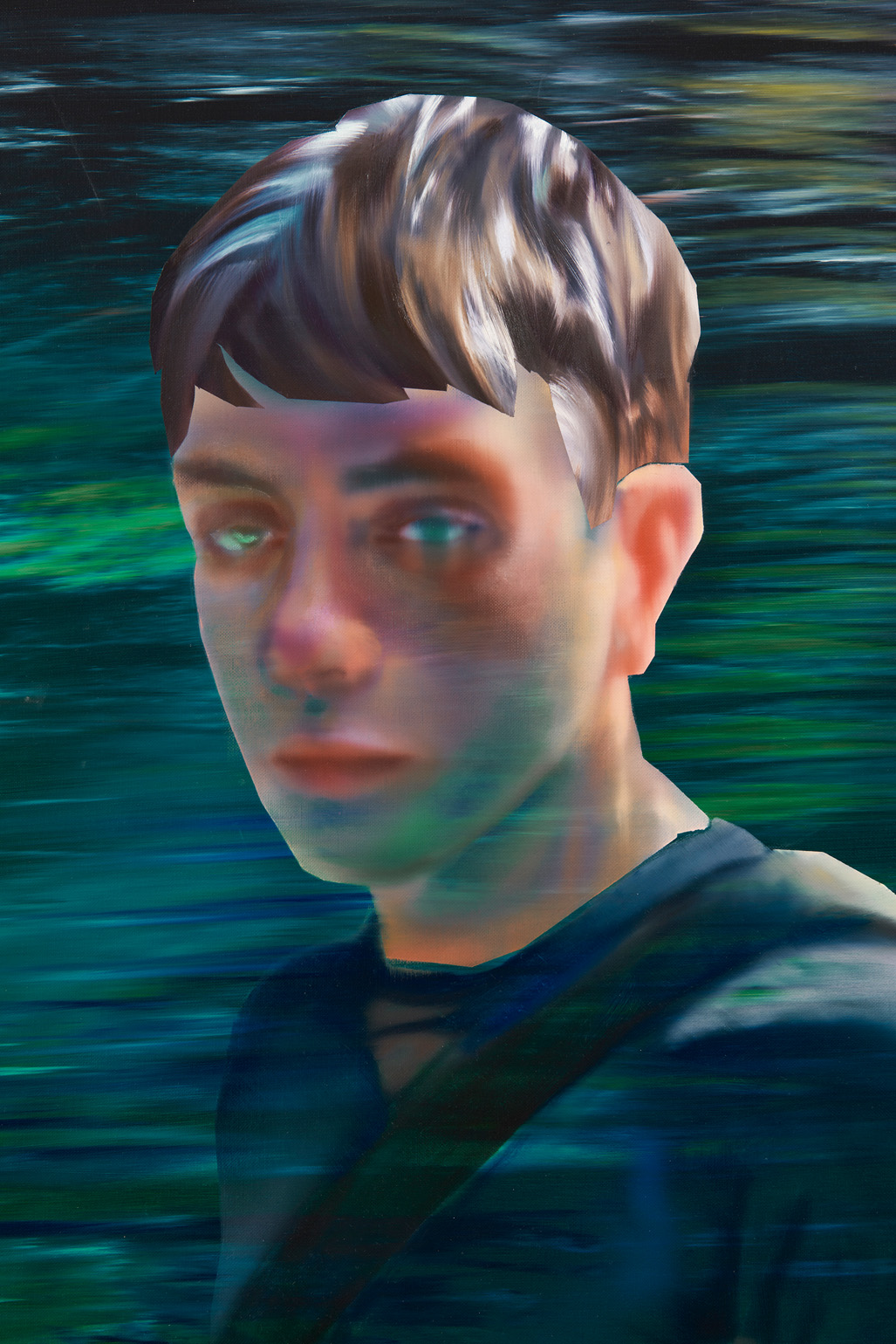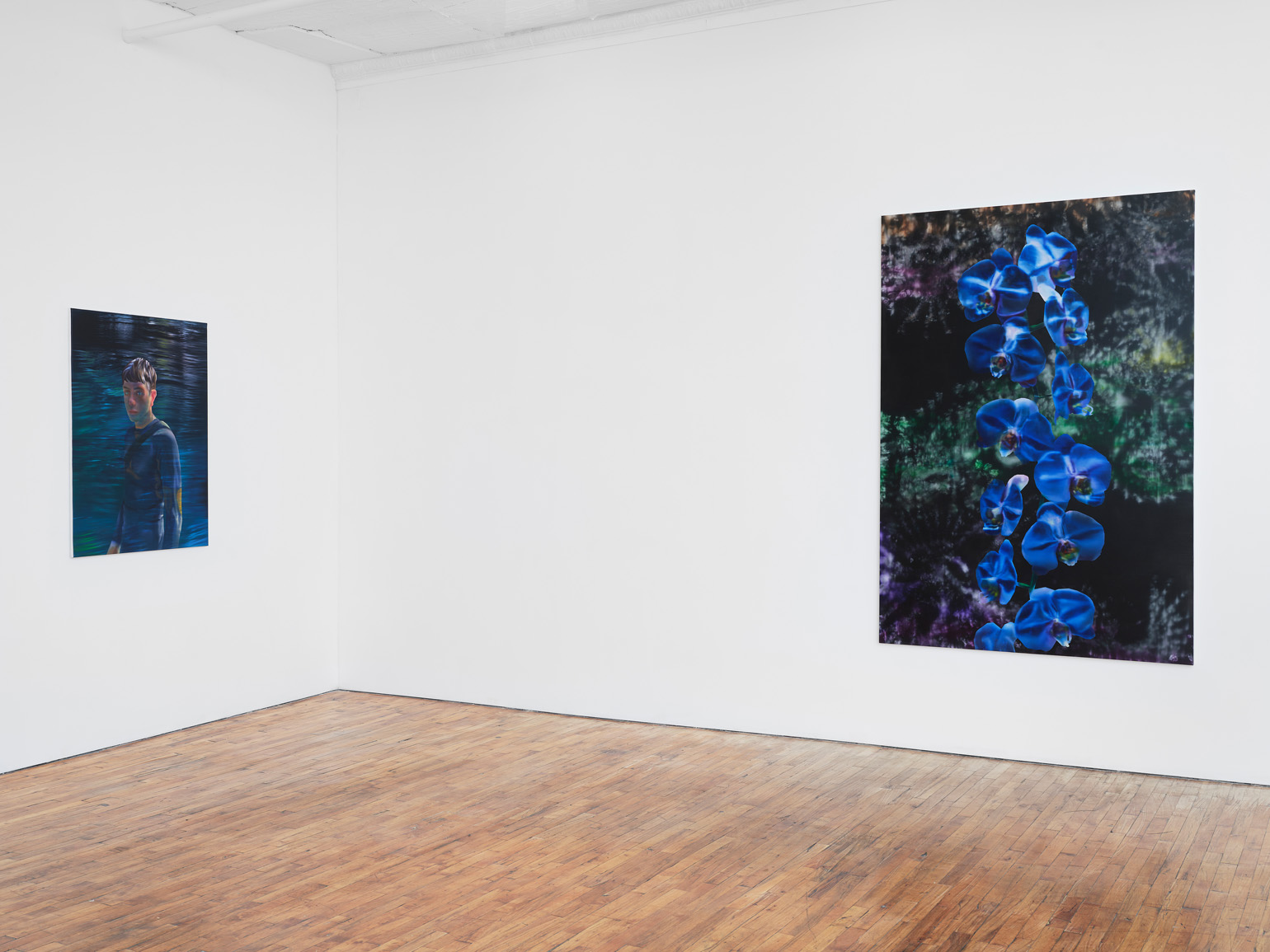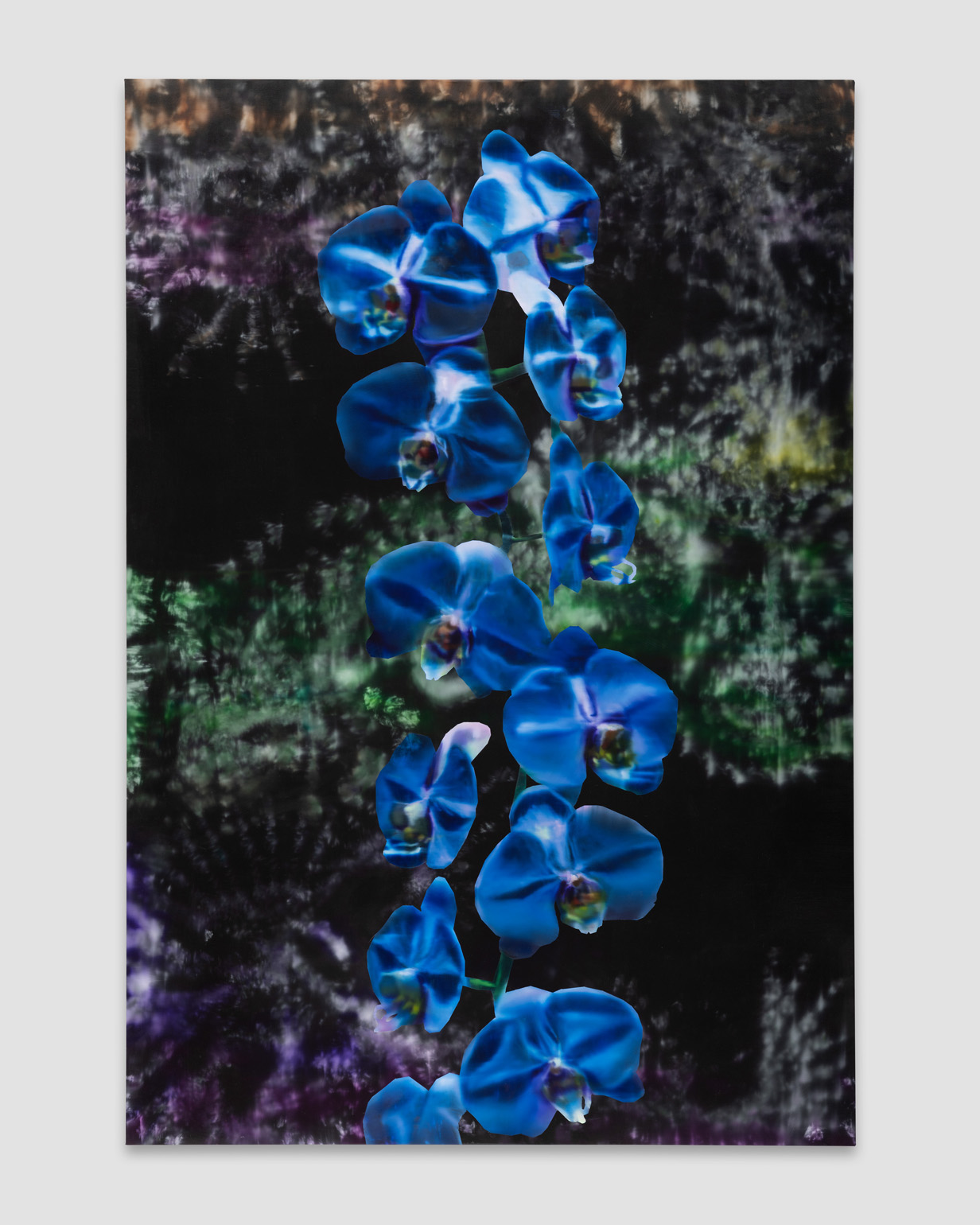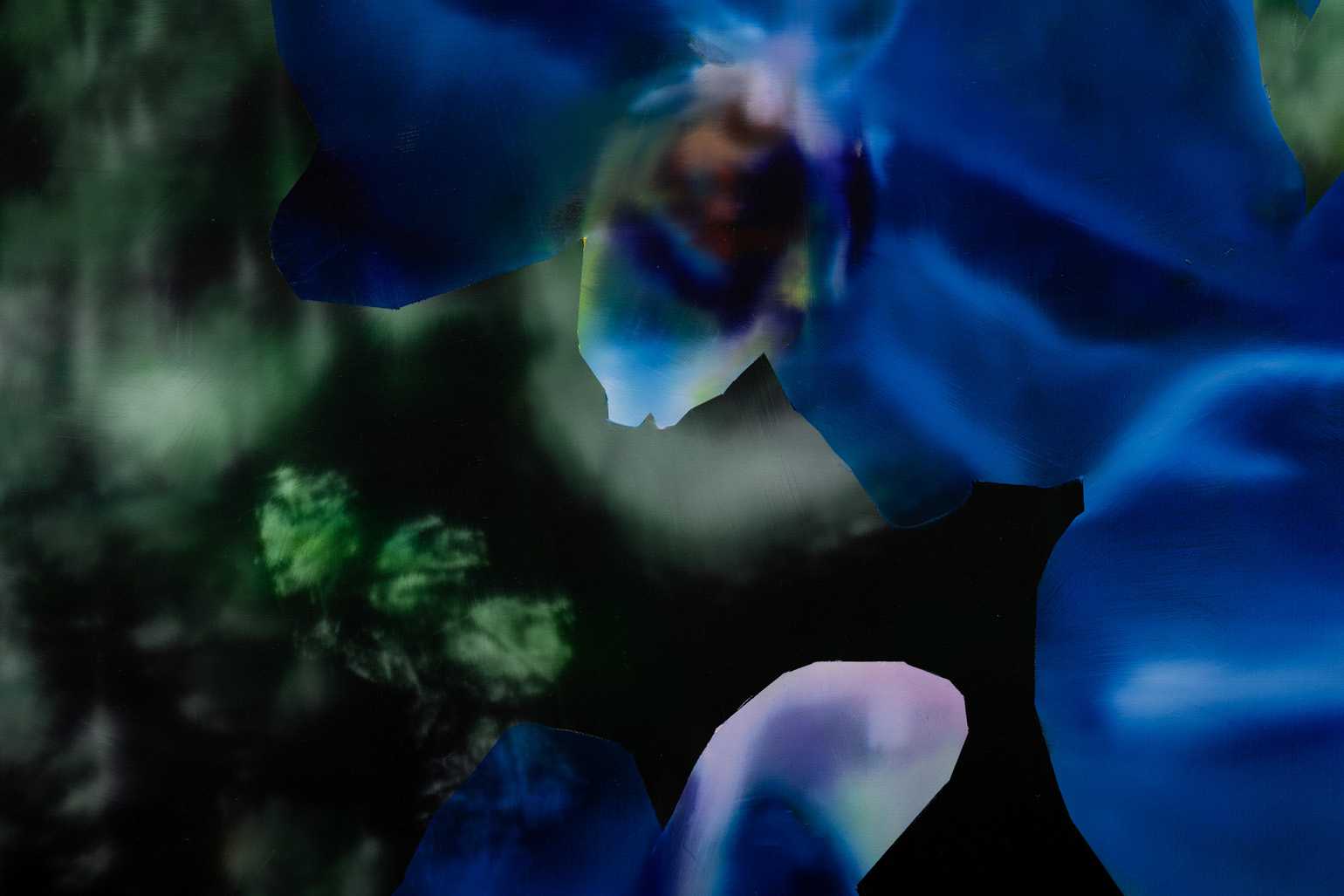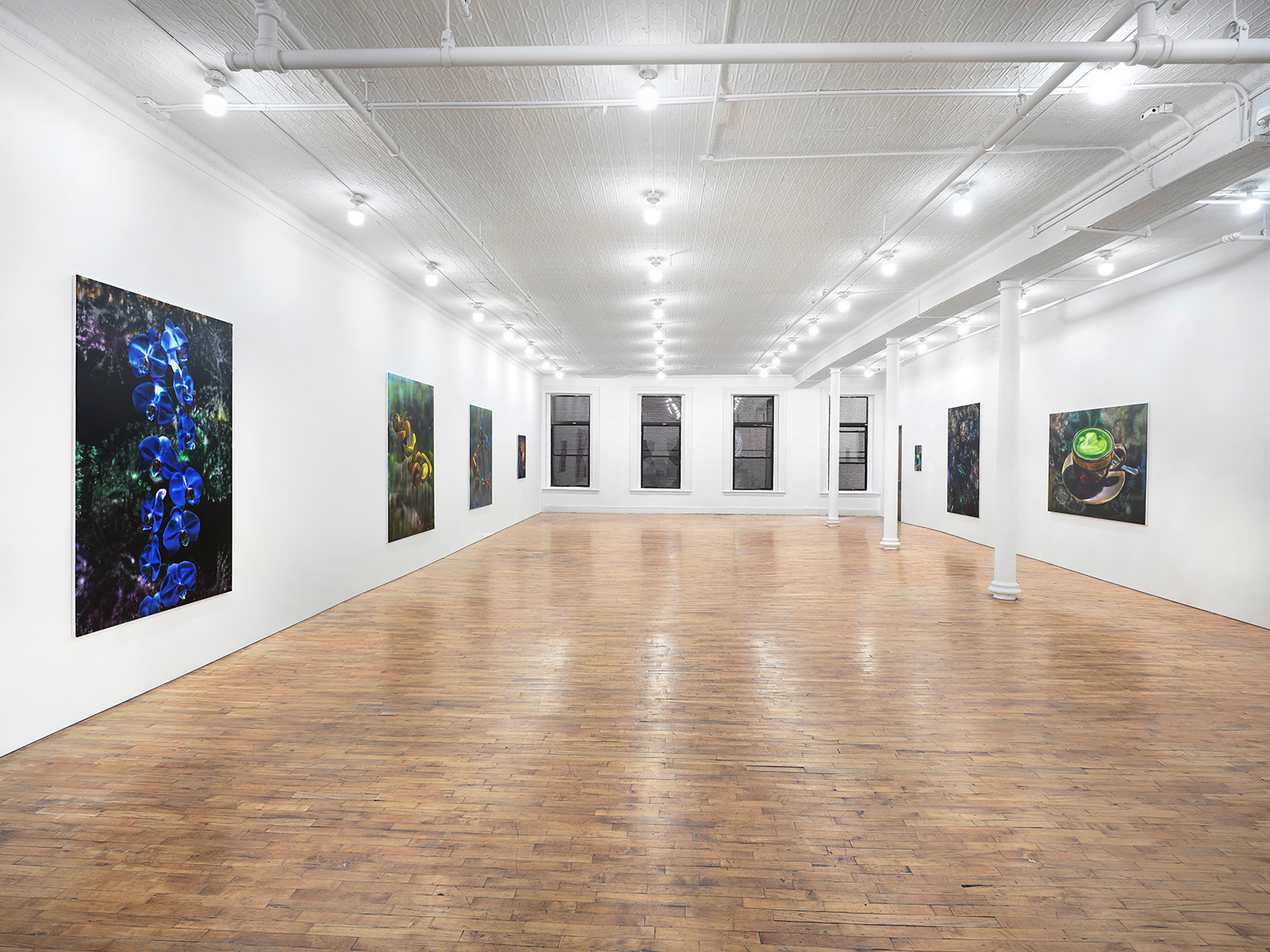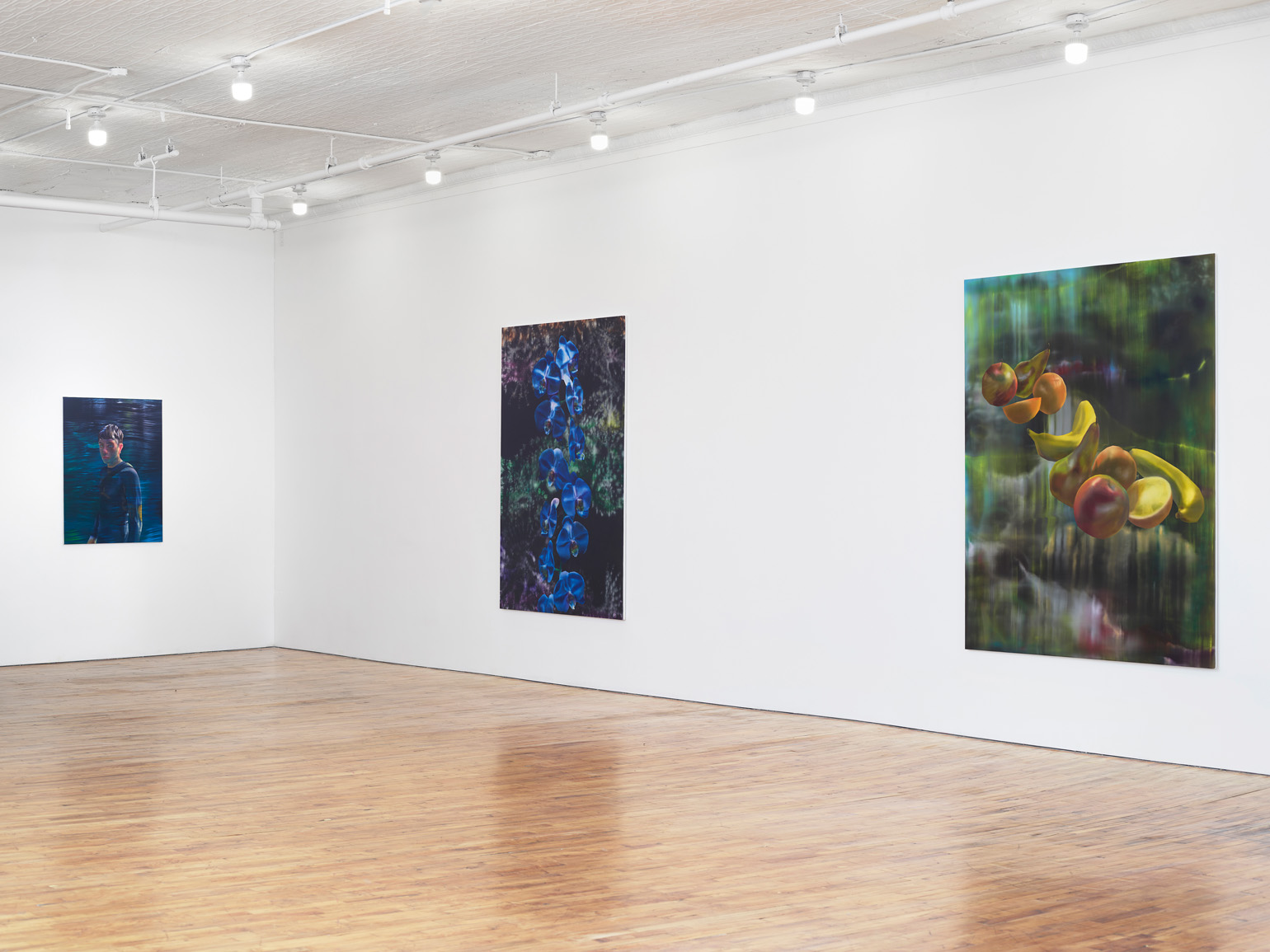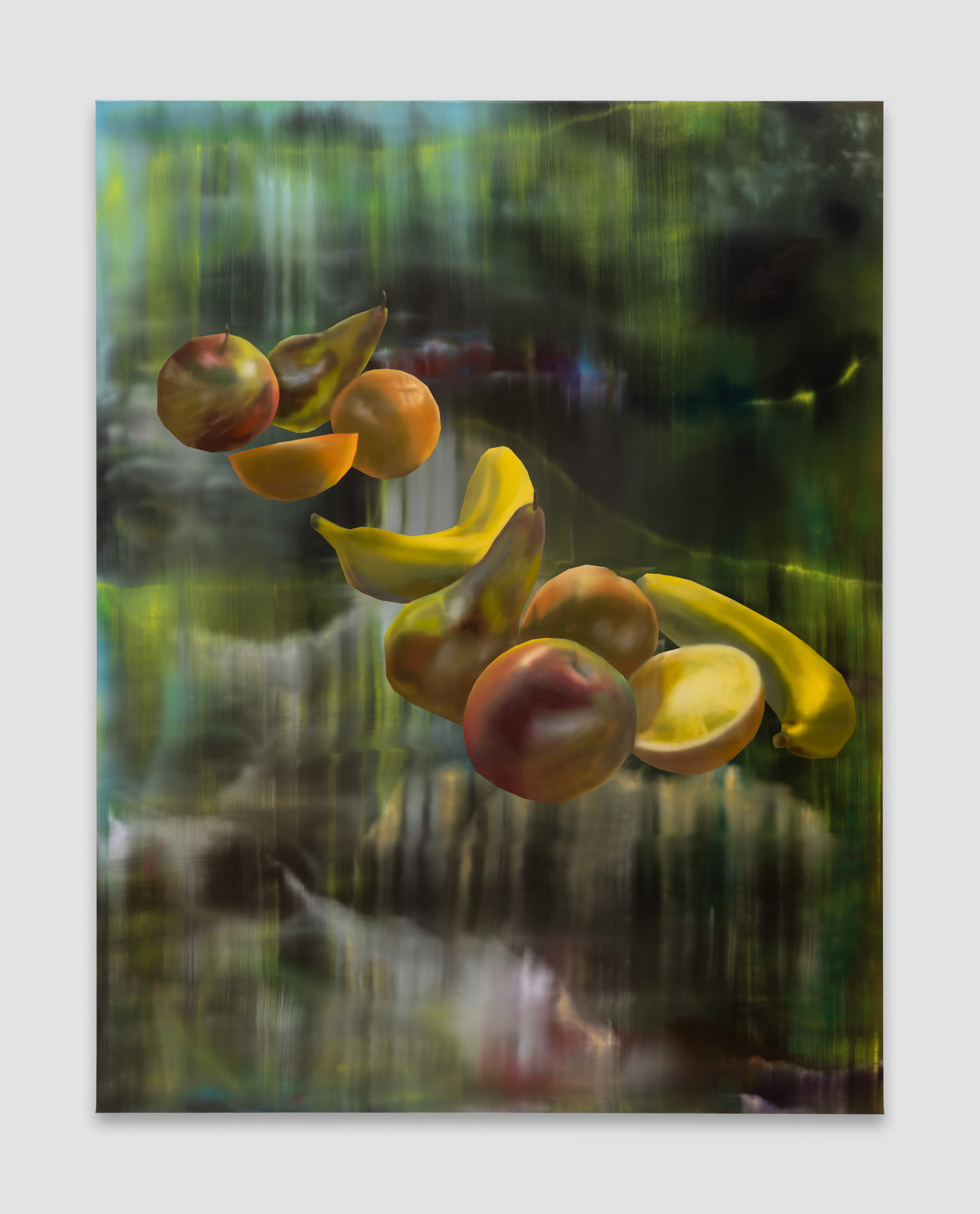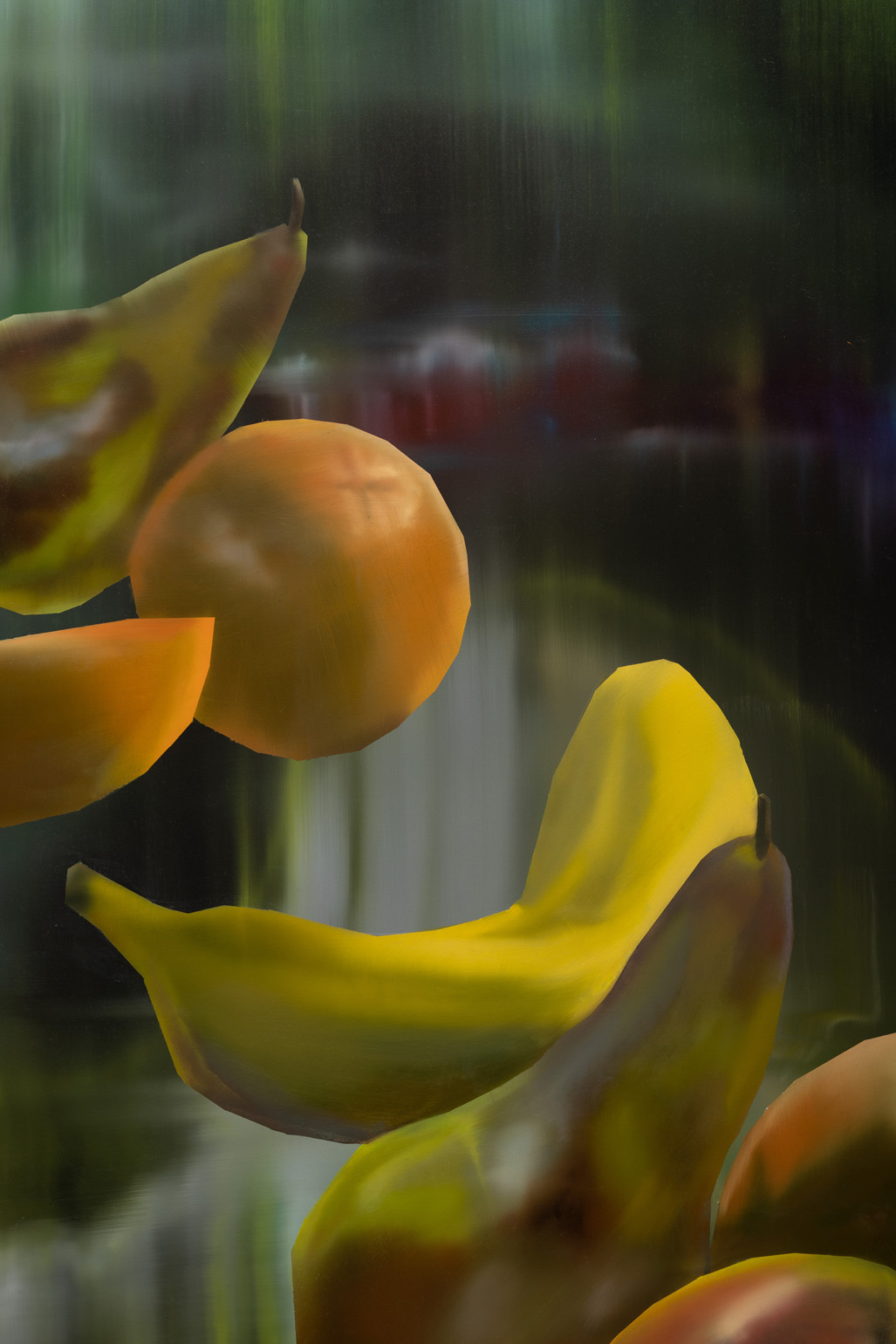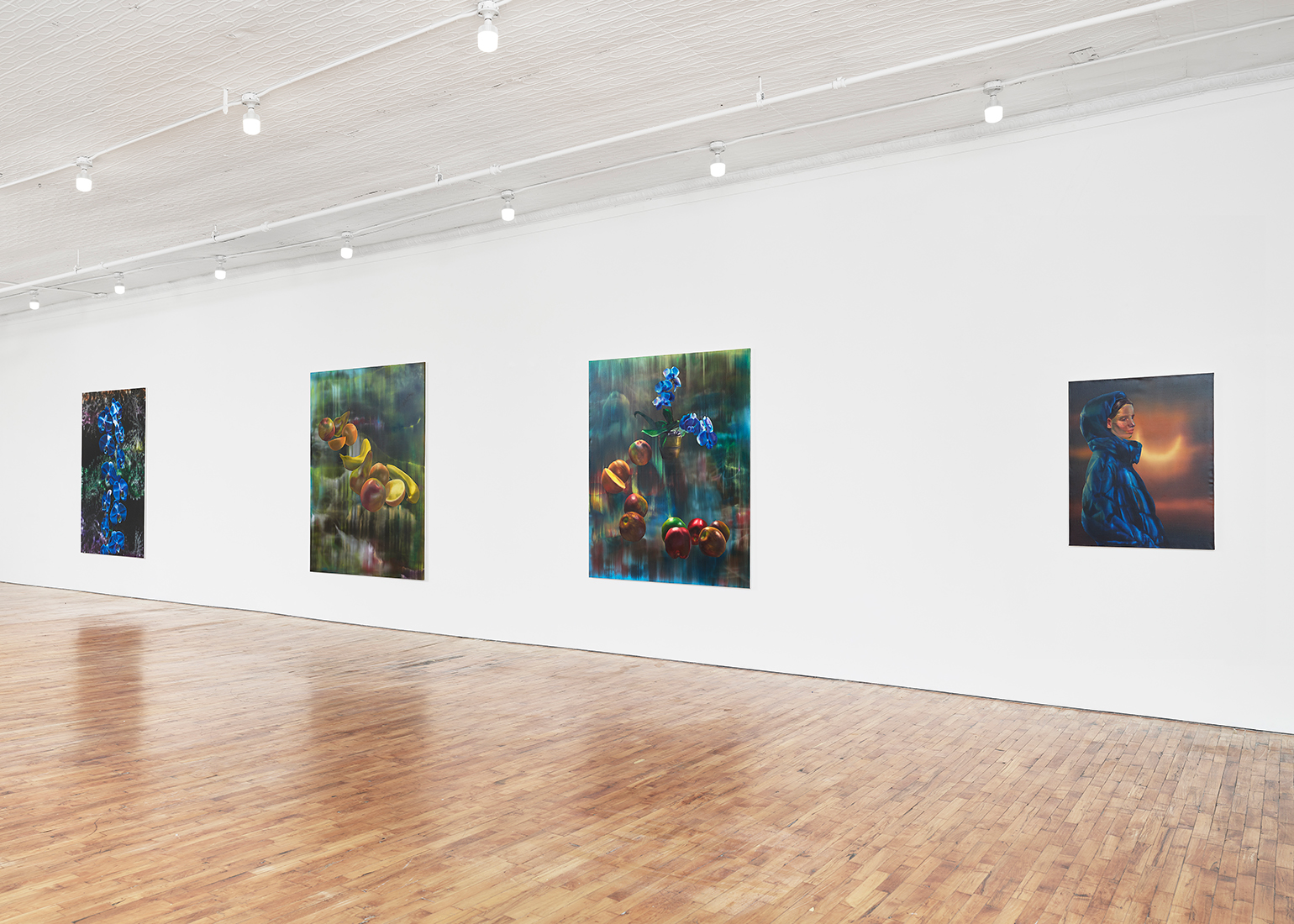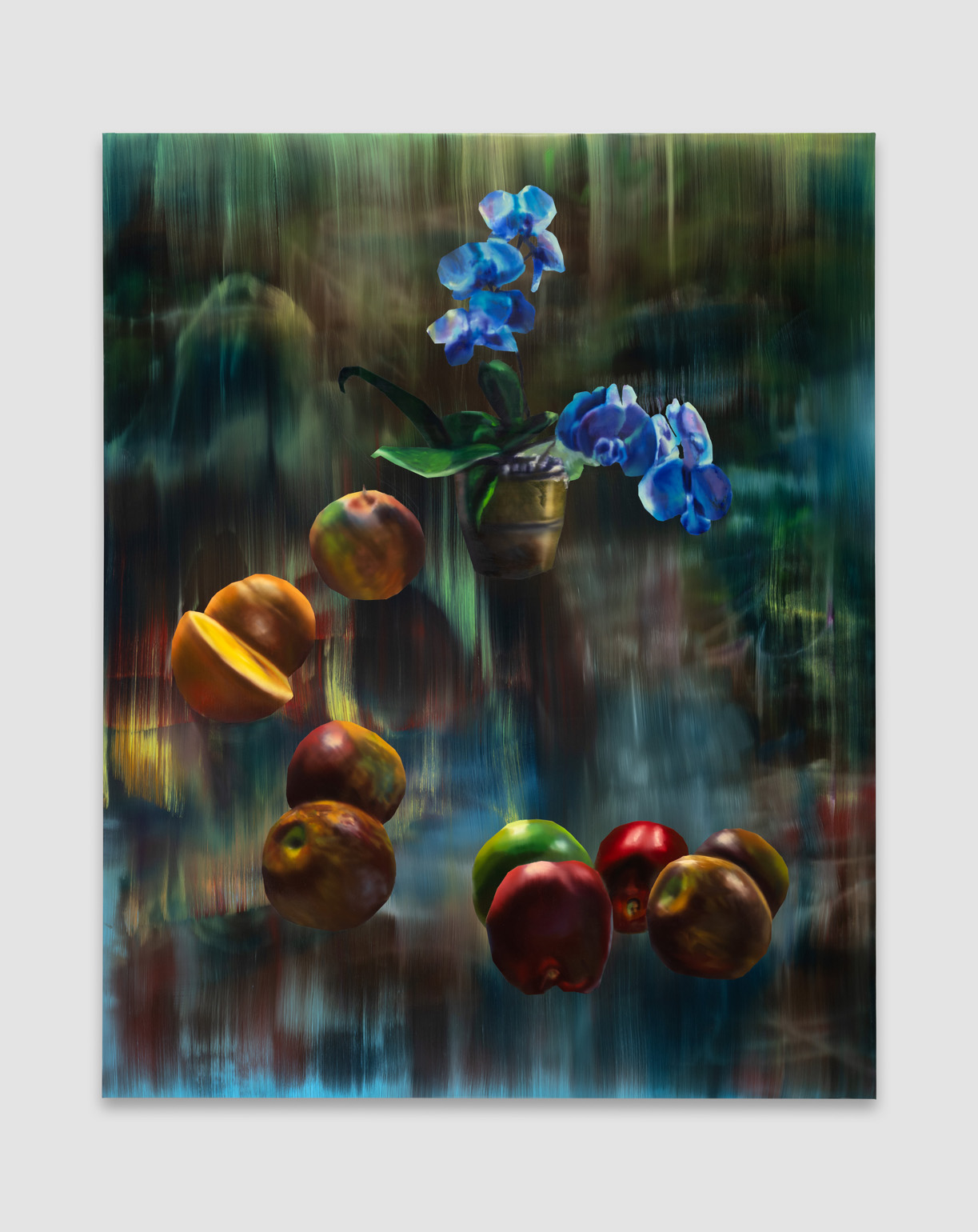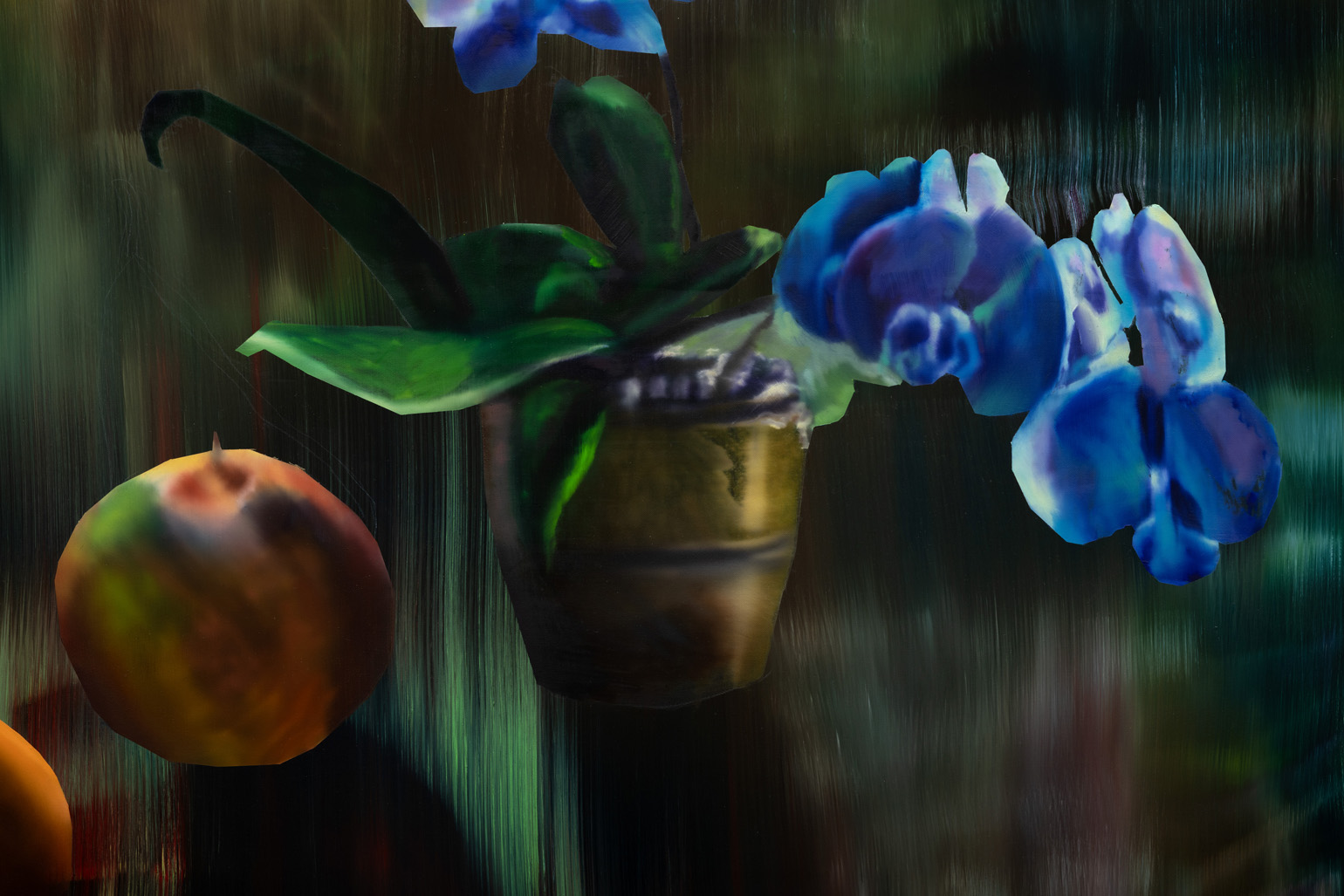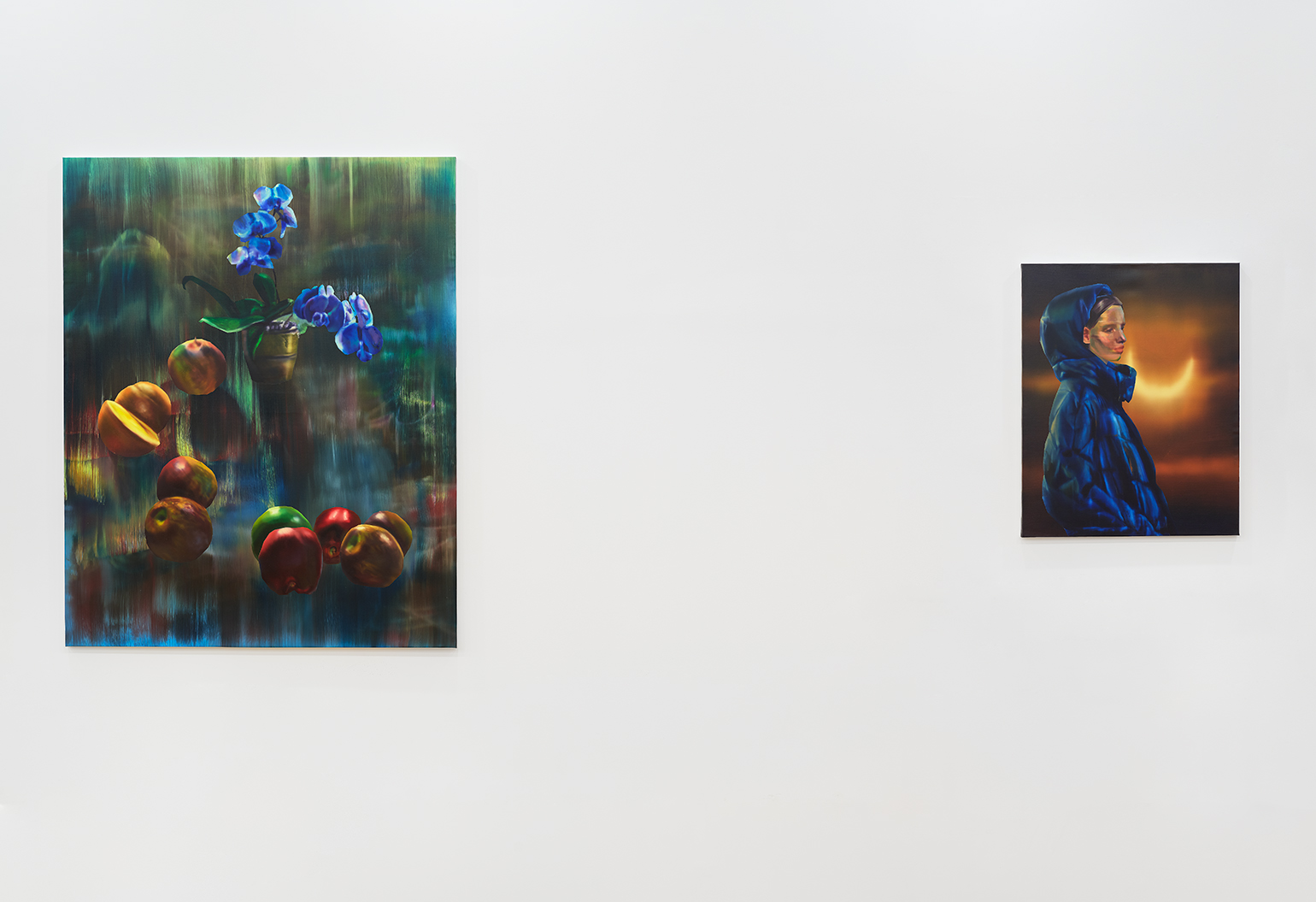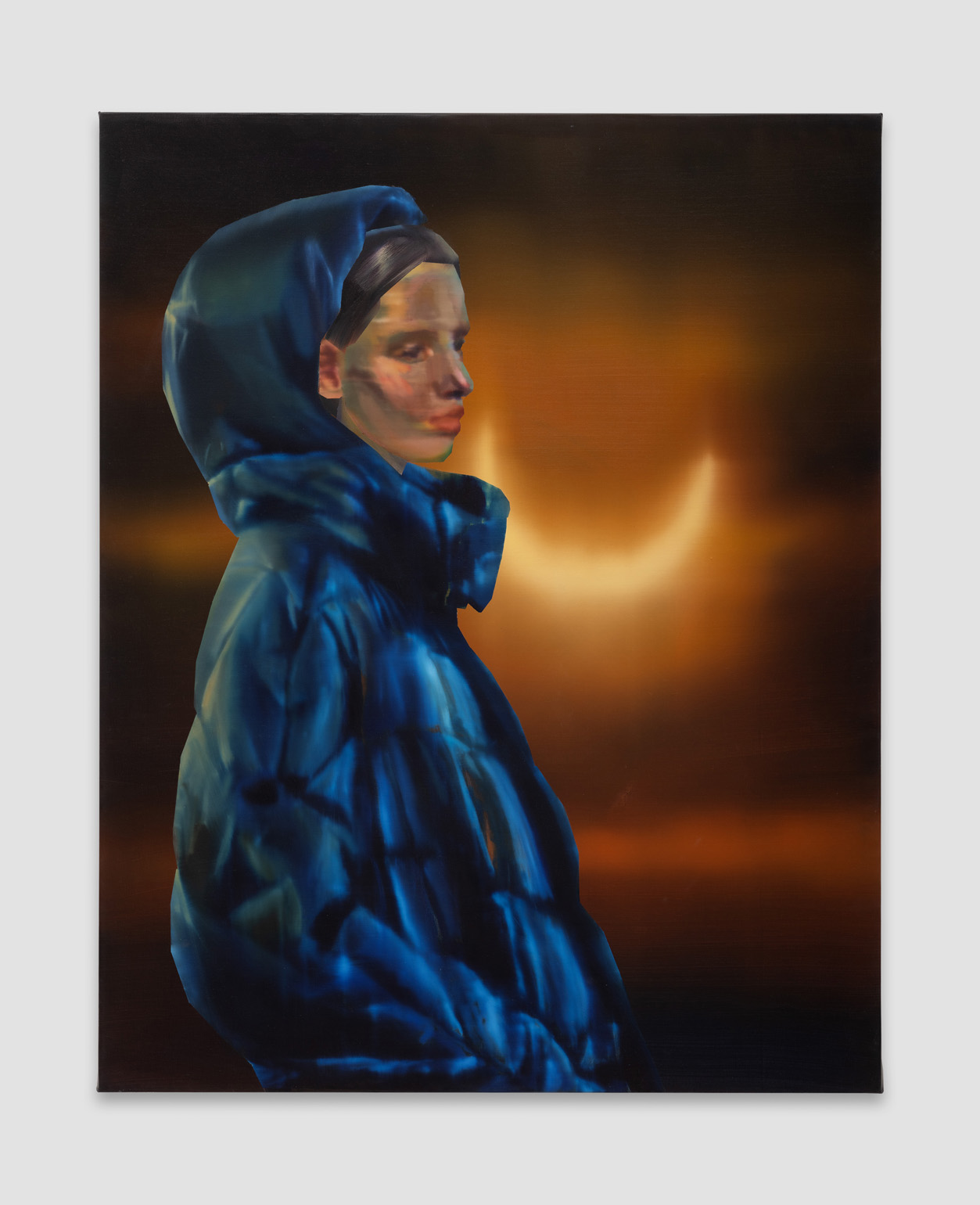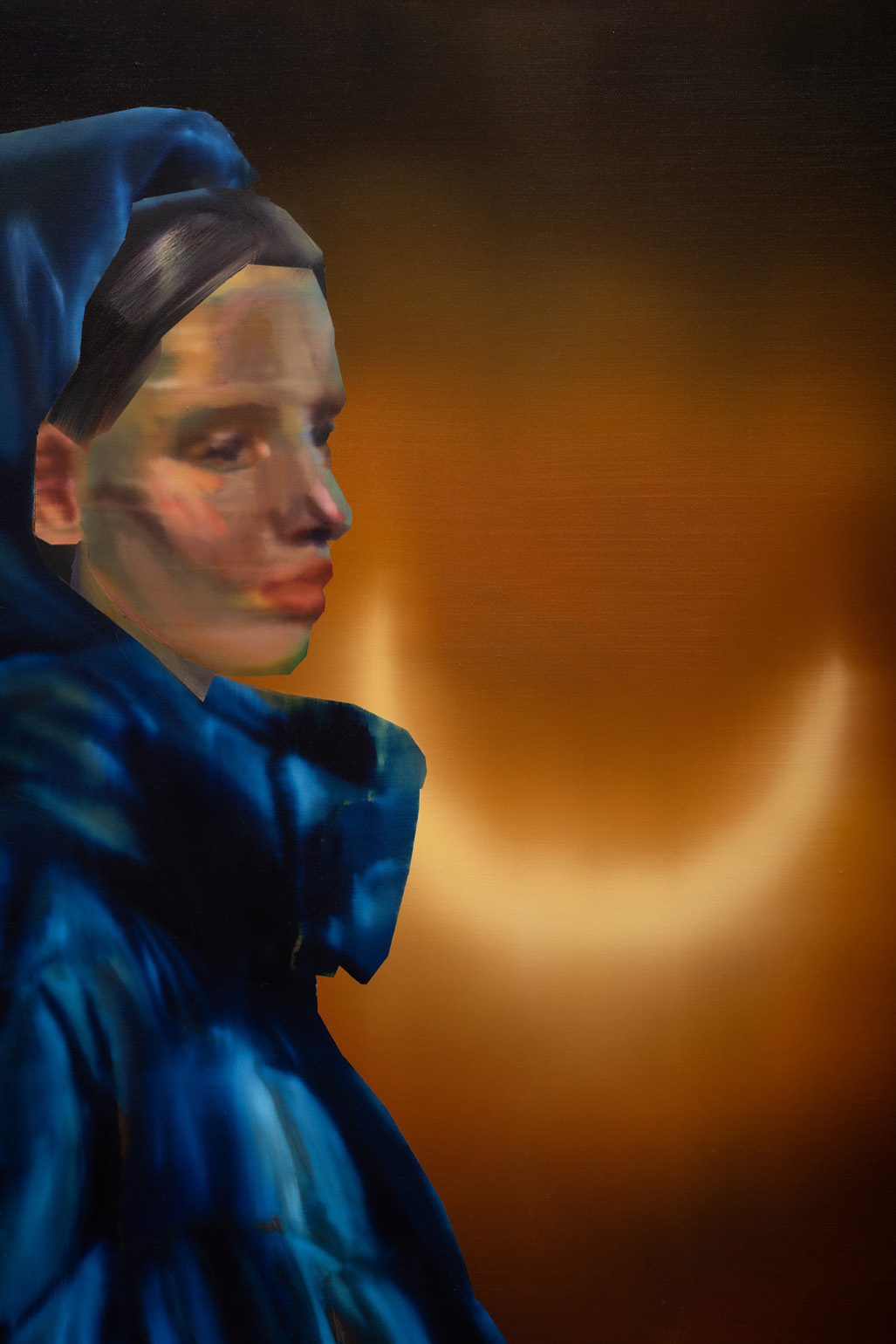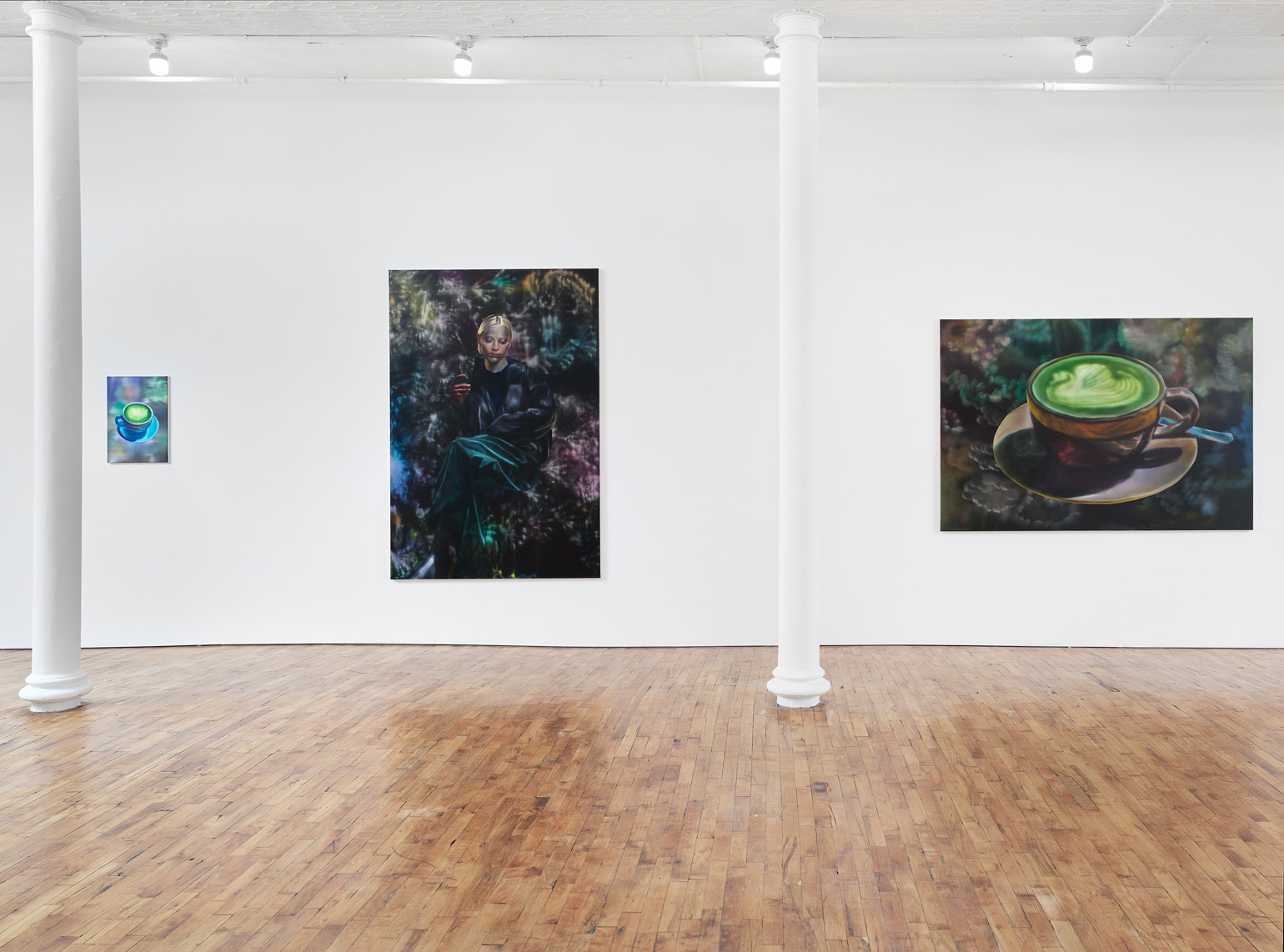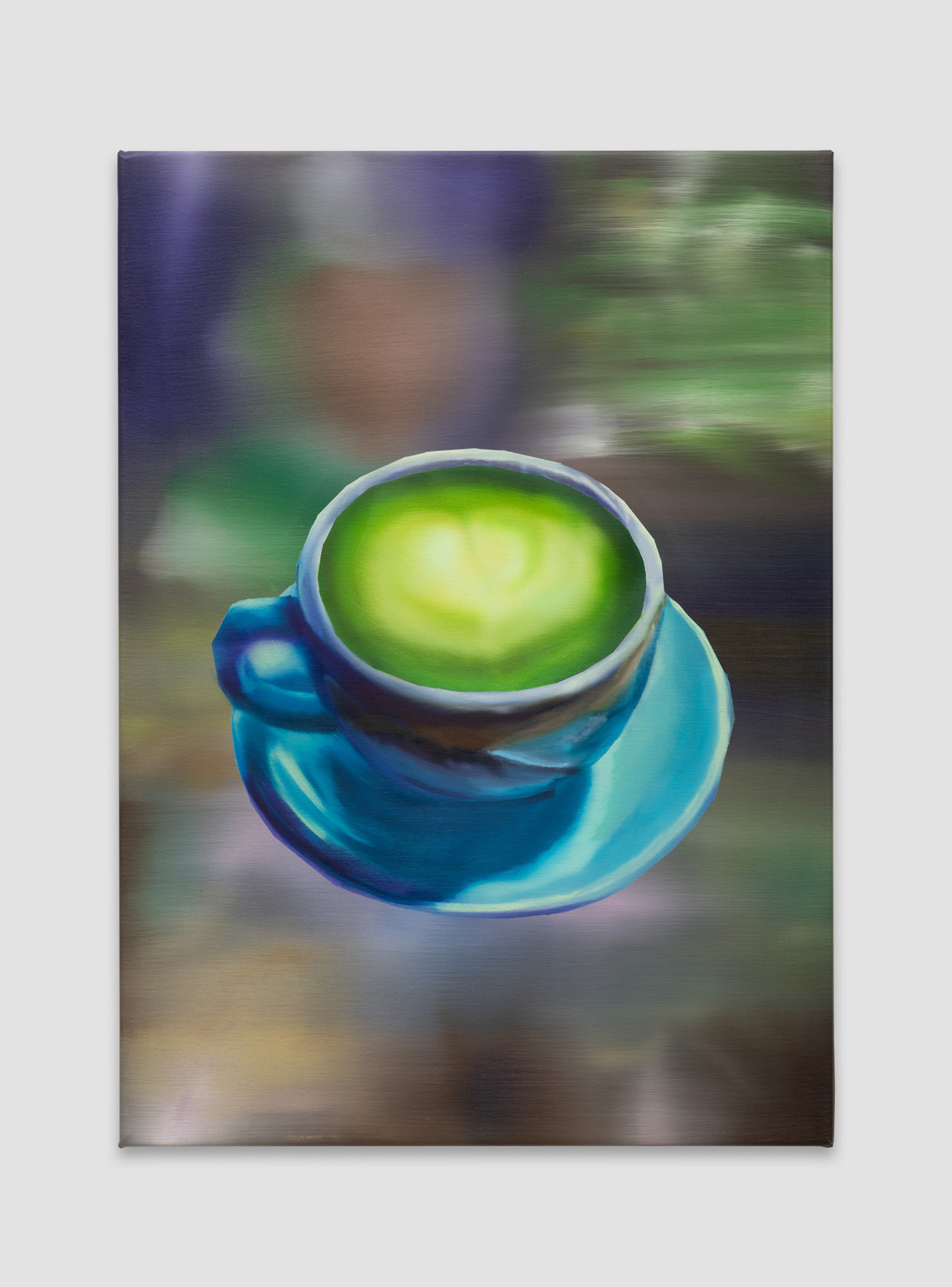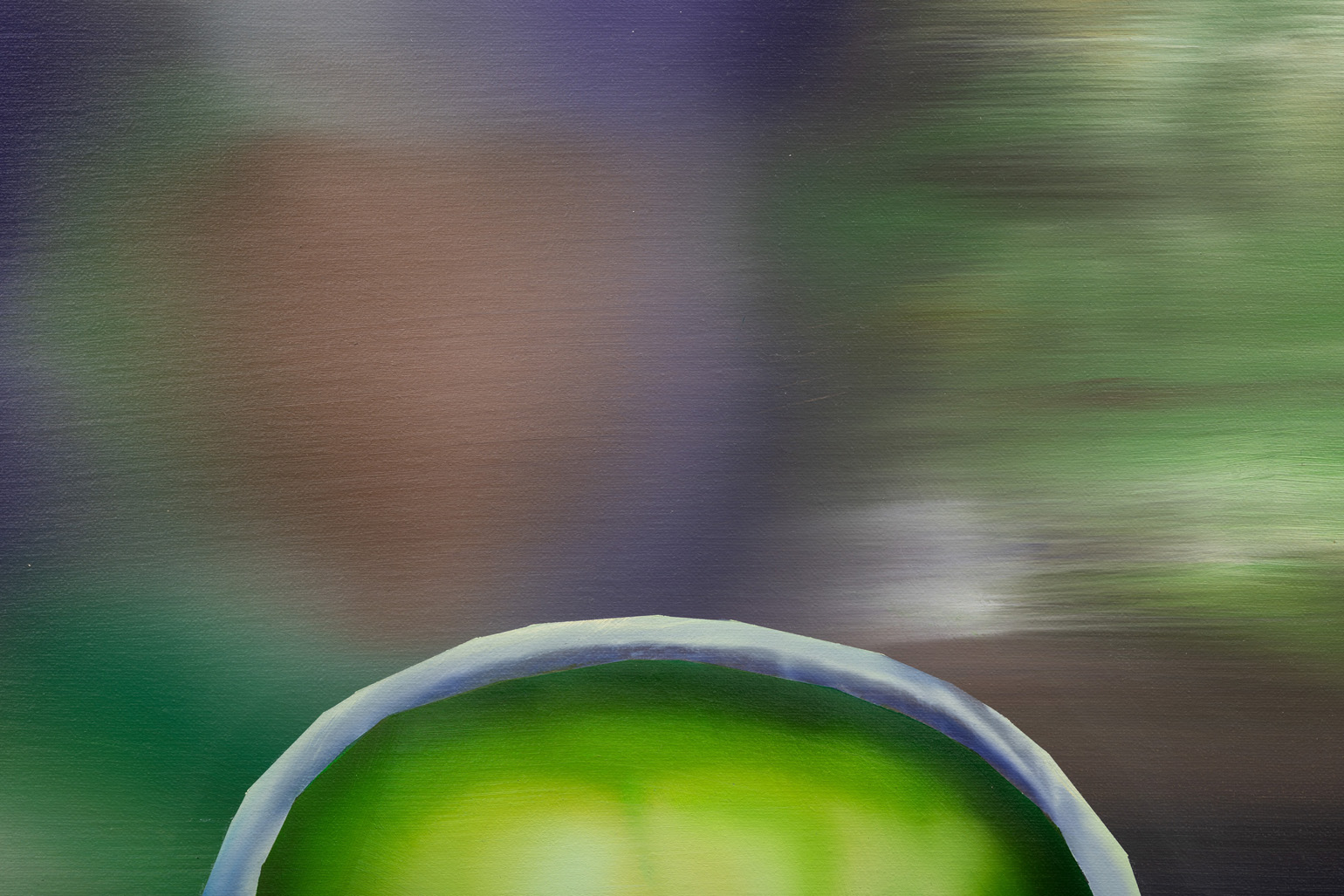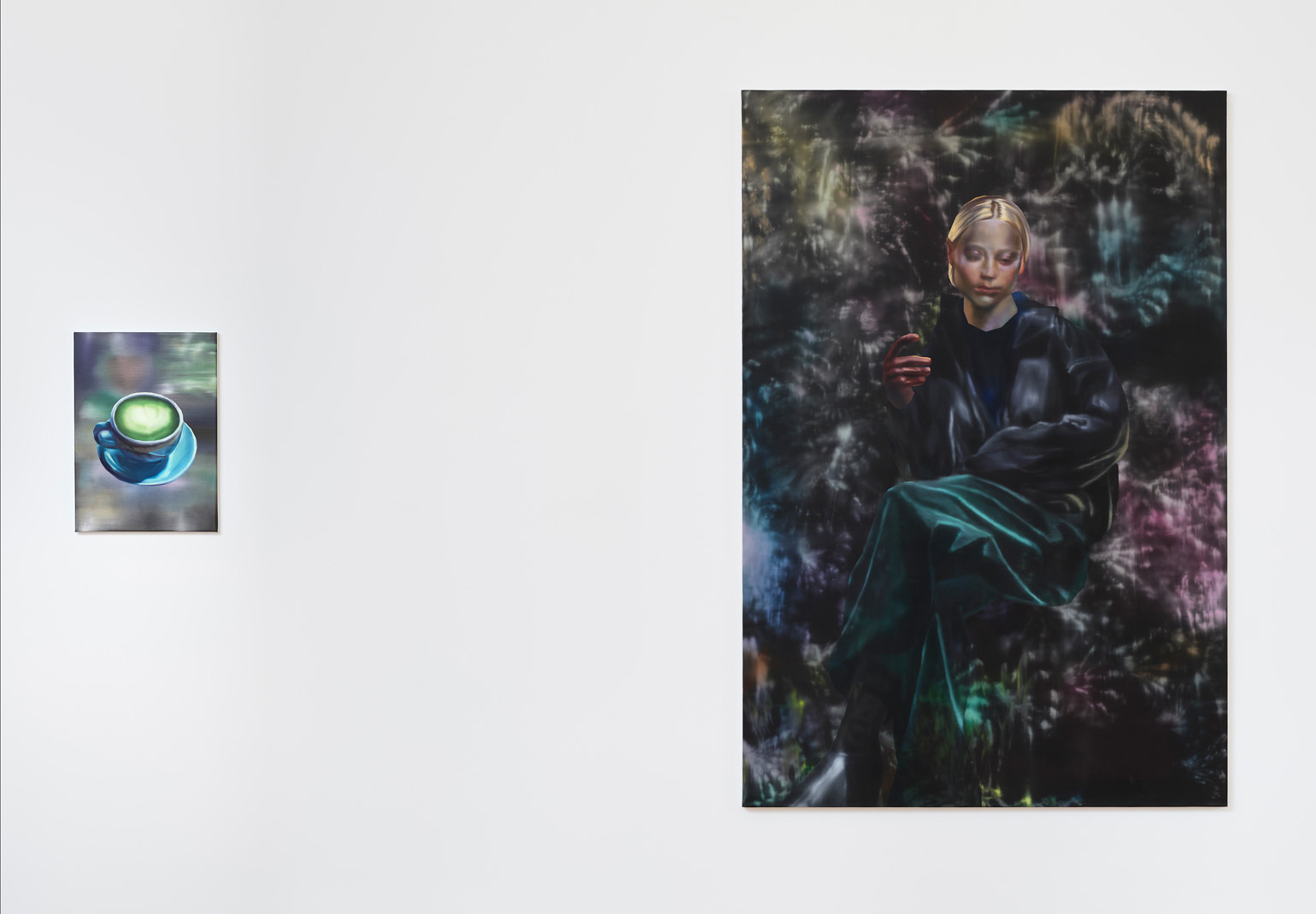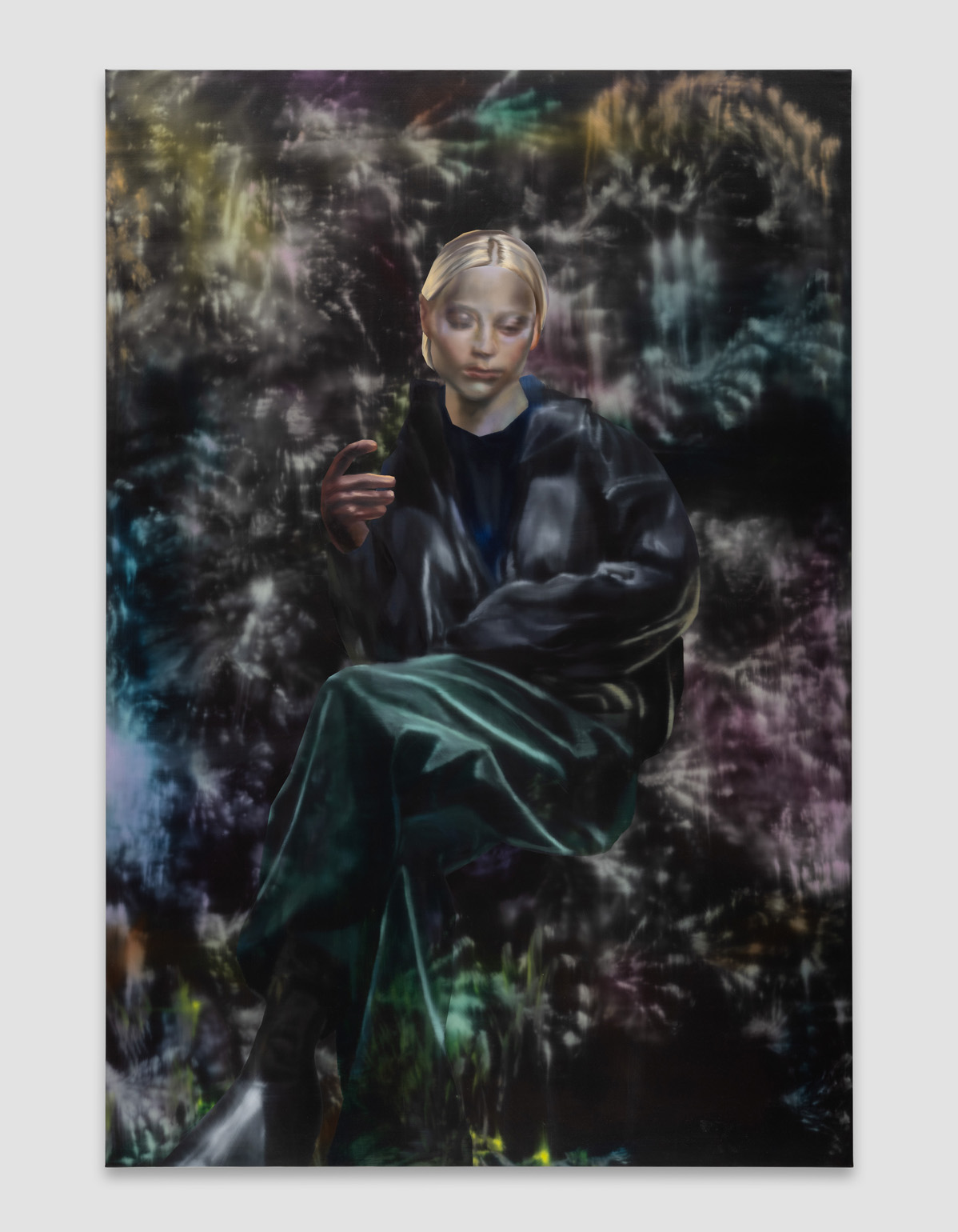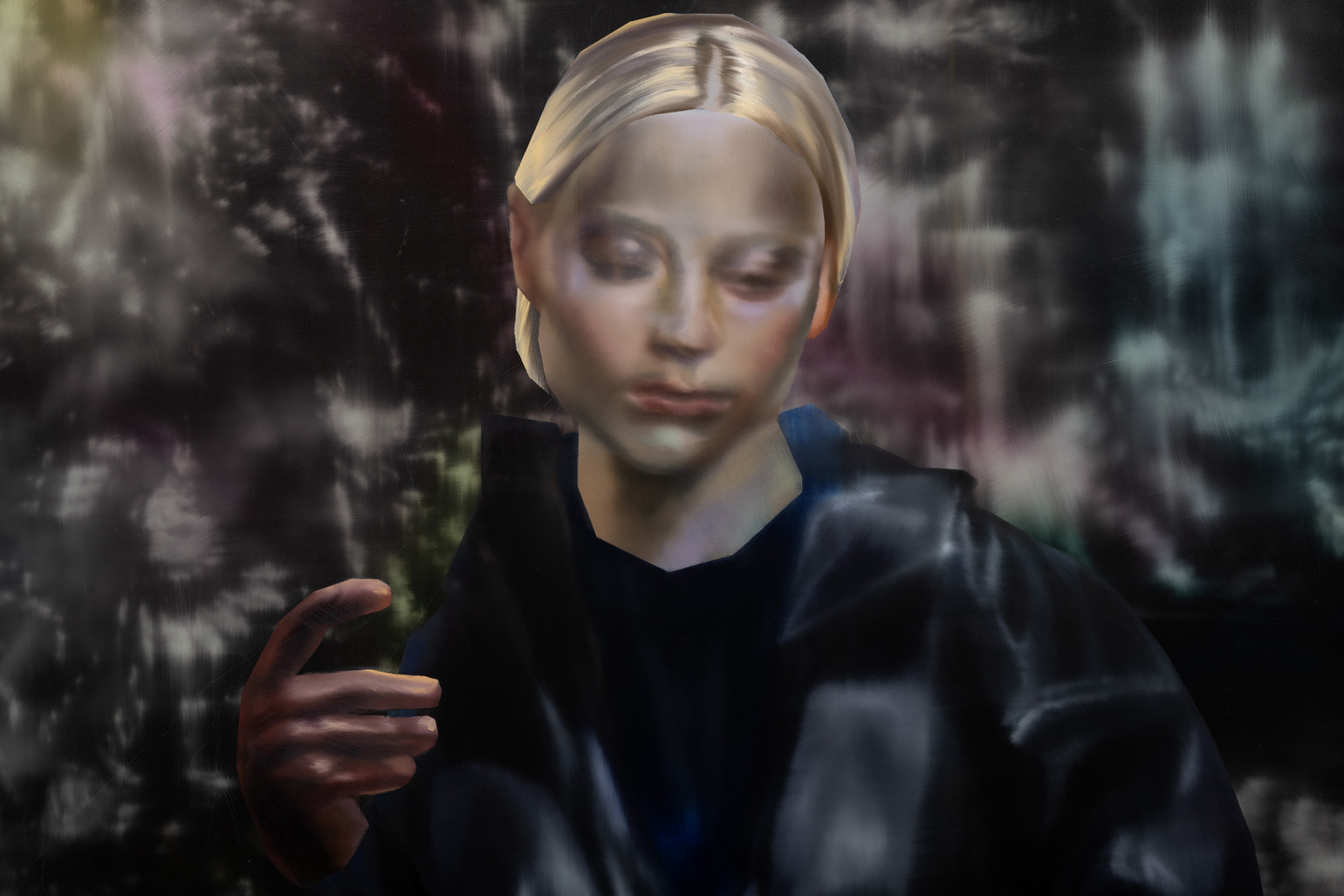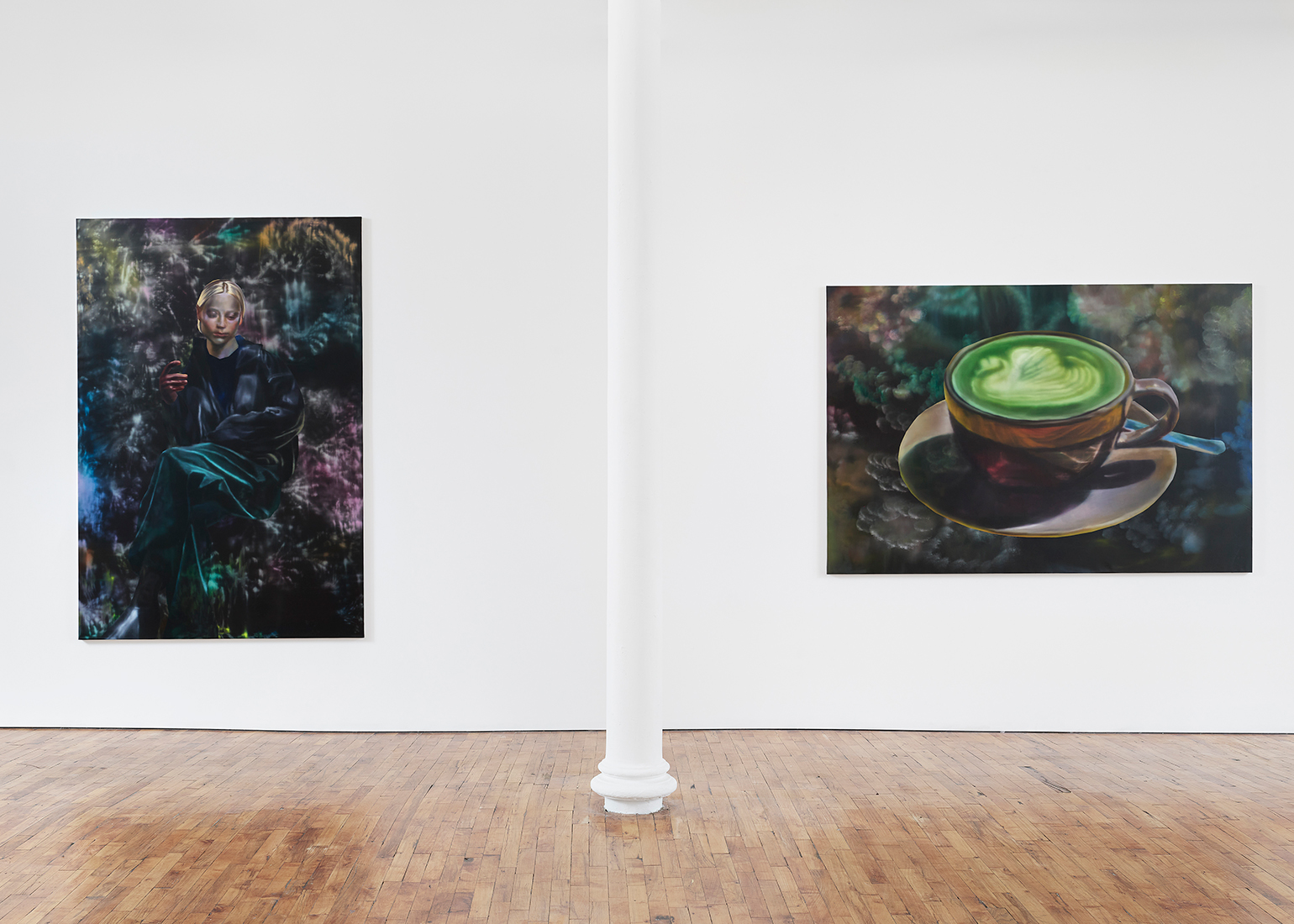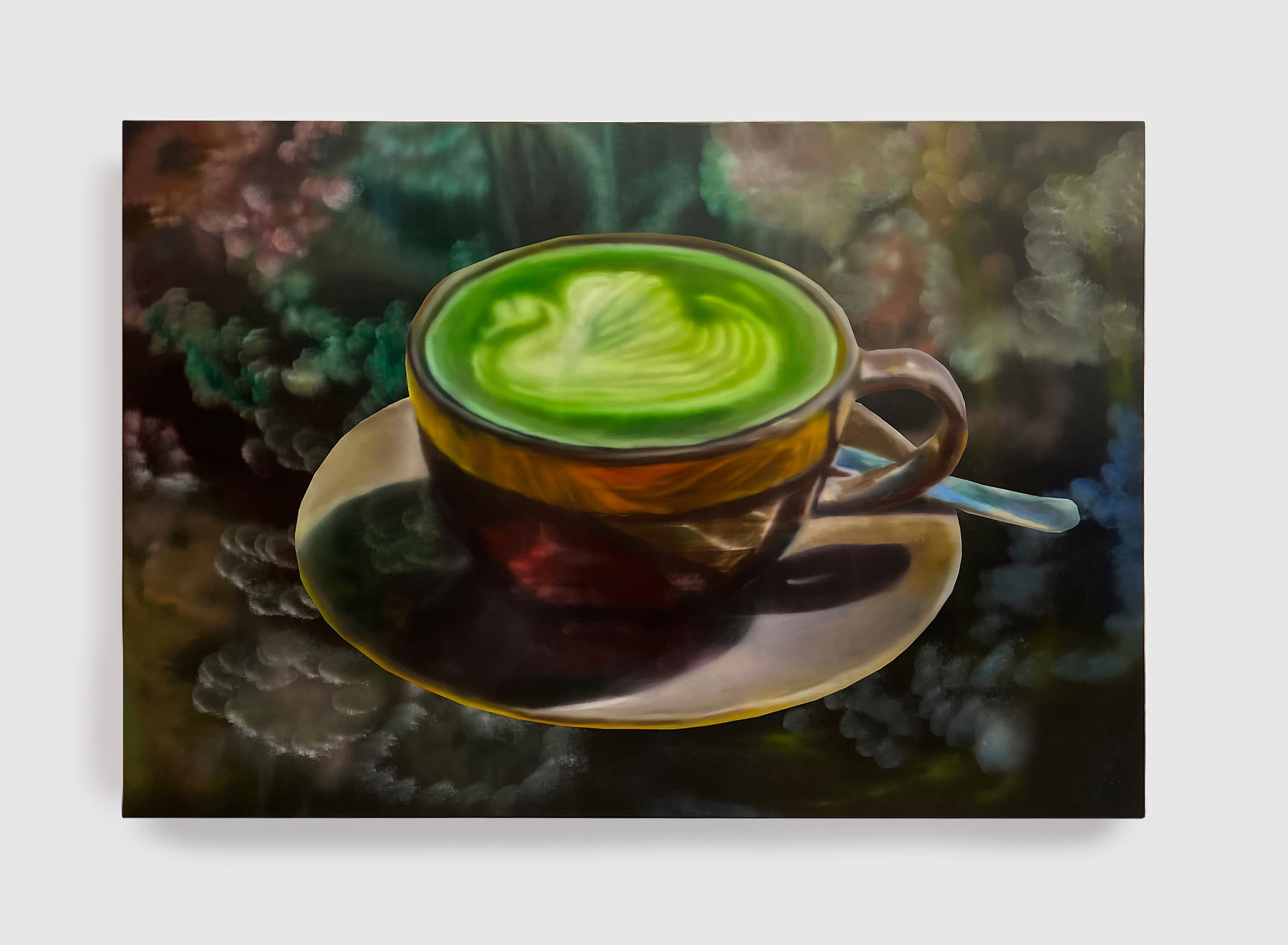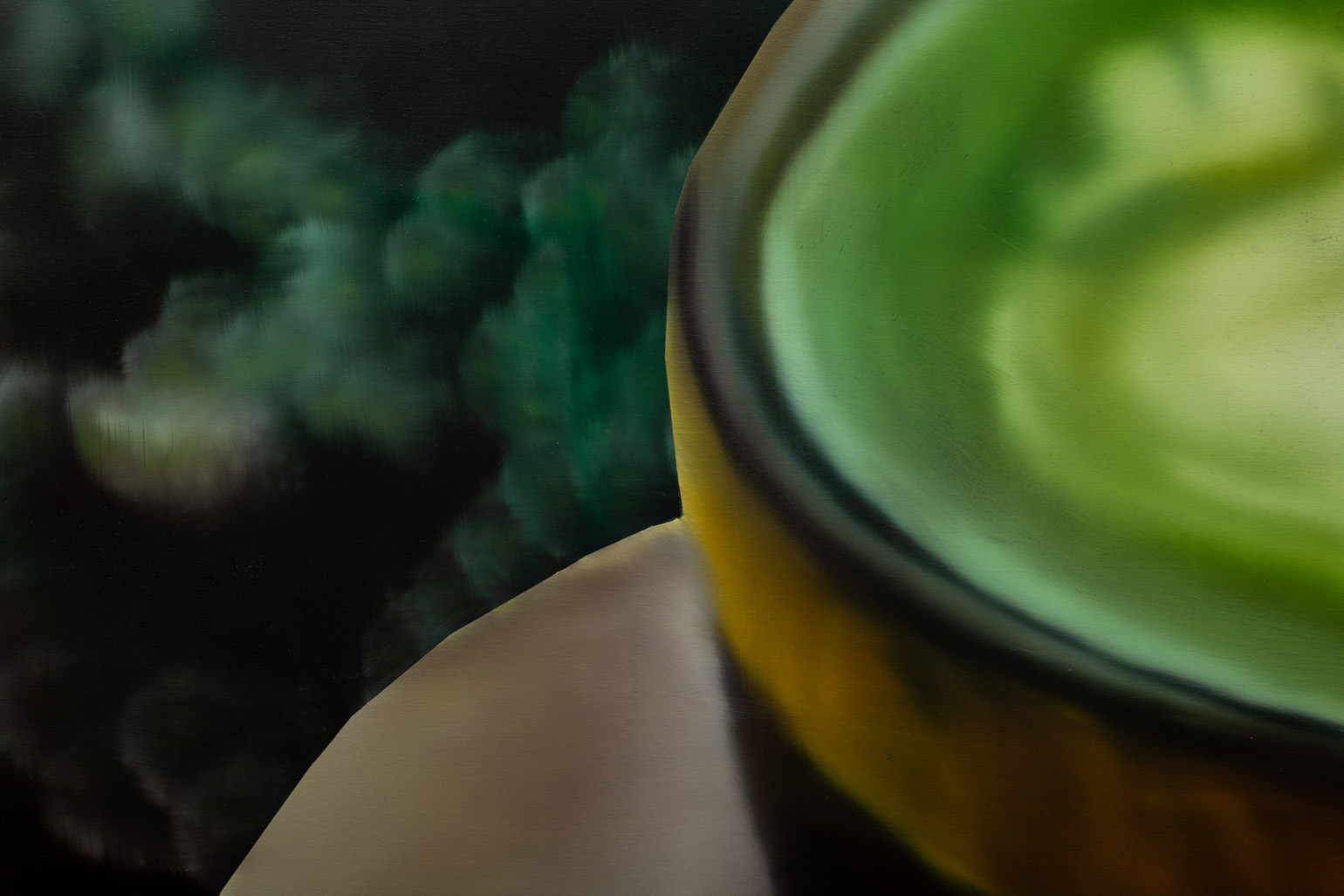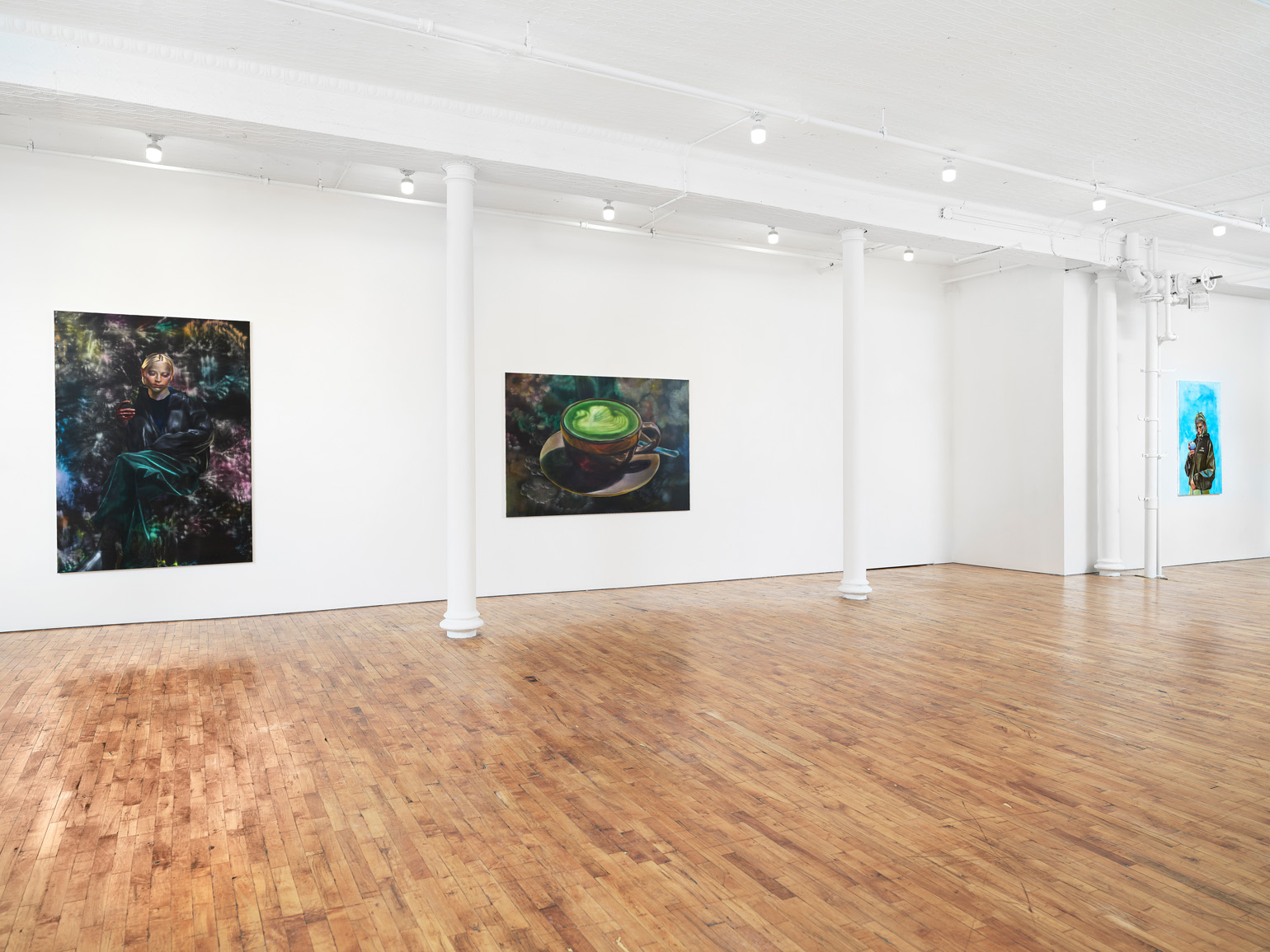Rute Merk’s new exhibition at Tara Downs emerges from a machinic acronym, a play of meaning, that initially puts one in mind of emoticons or turn-of-the century operating systems. XP: the combination of these two letters produces a multivalent phrase; in other contexts, it could stand for extreme programming or cross-platforming, and these alternative definitions do not seem too far removed from the maximalist posturing or the feats of translation accomplished by Merk’s large-scale oil paintings. Yet by the abbreviation XP, Merk refers particularly to the term experience point, taken from gaming: a unit of virtual achievement earned through gameplay. Extricate this term – experience point – from its immediate context and its peculiarity, its alienating effect, becomes apparent: the compressed economy of the phrase begins to reflect its attempt to turn qualitative data – experience, the raw material of life – into a quantitative measurement.
This is exactly the sort of inversion or transformation that animates Merk’s practice, and its predilection toward expressing human affect through the vernacular of screen-based technologies. The artist’s nacreous, saturnine oil compositions render a specific digital aesthetic – a sensibility borrowed from role-playing games and virtual worlds – unexpectedly, through some of the most fundamental, traditional techniques available to the painter. Emerging from a space of generational ennui, Merk’s dematerialized world has long been populated by a bevy of disaffected youth, millennial avatars whose own relationships to the artist remain opaquely personal or parasocial, downcast figures invariably clad in athleisure staples like cross-body bags or puffer jackets, and in brands like Arc’teryx, or, most notably, Balenciaga.
Without forsaking her propensity for figuration, the artist’s recent paintings also reflect a deeper consideration of the correspondence between screen-based and physical processes: still lifes such as Fruits and Blue Orchid or Apple, Banana, Orange, Pear, 2023, seem to evoke both the historical painting genre as well as the modeling of advanced engineering in agricultural industries, while the works Matcha Latte (Swan) and Matcha Latte (Heart), also 2023, somewhat humorously present an intertextual depiction of latte art – a cheeky nod, perhaps, to art’s status as a commodity, and its attendant relationship to consumption. In Viki, 2023, one of Merk’s models palms the jigsaw-globe logo of Wikipedia, directing us toward another amateur mode of content creation, but also a highly collaborative form of aggregation, reminding us again of the extremes of online connectivity and in-person isolation.
But for all of Merk’s ostensive gestures toward relatively novel and disorienting social relations, toward new modes of representation, her work ultimately demonstrates the perceptual capacities inherent to painting as a form: its perpetually unfolding temporality, the continual present-tense of figurative painting, and its fleeting sense of capture, one taken for granted when viewing a photograph, a snapshot, but still uncanny when evoked by painting. Every painting marks indexically an experiential moment, and in turn generates for the spectator an aesthetic encounter, a point of experience. Merk’s immersive paintings explicate that fundamental relationship, providing us with iterations of the same scene, positing each as a site of contingency. In this way, the model of Gemia shifts positions and becomes Gemian, both 2023, and through a repetition of objects, the still lifes become dispatches from an intangible world. In the past, in works like Taihei, 2020, Merk has presented deeply saturated images of planetary, perhaps solar, eclipse, a suite of paintings that have always seemed tonally foreboding, even apocalyptic. One work on view, Lunet, 2023, revives this series, but impedes our engagement with the lugubrious orange of the horizon, the presentiment of ecological disaster. One of Merk’s models intrudes on the scene, seemingly aloof, unaware of our presence, absorbed in their own activity; they are a contemporary specter – flat as a cardboard cutout and translucent like a hologram – standing between us and the end of the world.
